Let’s start by saying that India is fascinating! And I don’t focus on the touristy side, the culture is amazingly rich with an enormous country.
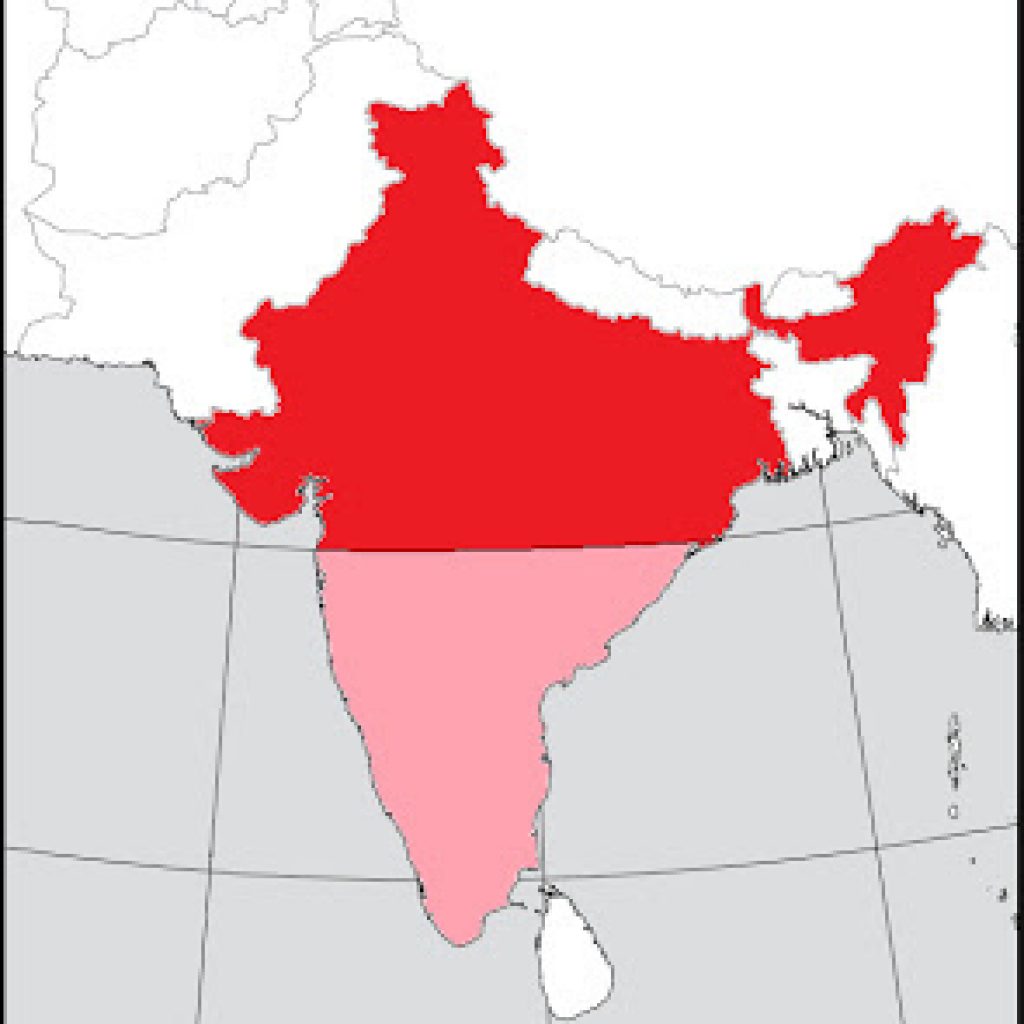
India has one of the fastest-growing economies at the time of this post. However, India needs compliance and cooperation, as 700 million Indians are exposed to polluted air.
For the purpose of my blog, I have divided India for no into North and South, however the accurate ways to divide India is into six physiographic regions based on different physical features: Northern and North-eastern Mountain, Northern Plain, Peninsular Plateau, Indian Desert, Coastal Plains, and Islands. Natural arrangement sets these divisions apart.
We all learn different things while traveling, and I might compare a bit here Northern and Southern India. This is what “I” learned
- Some of the hardest working people I have ever seen in my life.
- The North India region was the center of the Sultanate, the Persian-speaking dynasties that ruled India.
- North India was the center of the British Empire. I dare only to mention that this was the period of “British Raj” and “Raj,” which means to rule. The British India Raj was a legion of countries: India, Bangladesh, Pakistan, and Myanmar, which the British ruled among other regions of the world.
- Northern India seemed to me (perceived data analysis) to be more traditional in the way women dressed.
- Hinduism is the most dominant religion.
- Northern India has lower literacy rates and overall fewer formally educated people. Literacy is key in socio-economic progress.
- Fewer people speak English than in the South, partly due to the reason mentioned above.
- There are mostly vegetarian restaurants.
- Women wear bangles for several reasons, from increasing blood circulation to repelling bad vibes.
- The North seems to be much more traditional than the Southern part.
- The area of the three rivers Indus, Ganga and Brahmaputra with their tributaries is here.
TRANSPORTATION
At the time of my travels, I was able to rely on the OLA application for getting around Delhi. From the moment I arrived at the airport, being able to take OLA was great and it was easy to identify them with their neonish green sign. Please note that Uber is the first option to consider when looking for transportation, followed by OLA. I feel the need to document this because OLA was very professional and easy to reach.
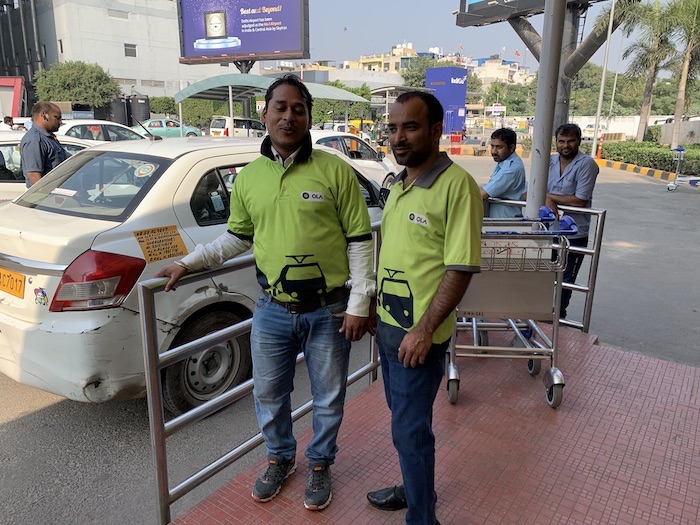
New Delhi
The Capital of India and the center of all of the government’s branches. This major world landmark has been the capital of many empires and it can somehow still show its glory. This is a fascinating city full of life and in continuous movement.The capital of India and the center of all government branches, New Delhi is a major world landmark that has been the capital of many empires.
Despite its historical significance, the city is unfortunately plagued by severe pollution. Currently, 15 out of the 20 most polluted cities in the world are in India, and this has significant negative impacts on both public health and the economy. Air pollution is directly linked to illnesses such as asthma, coughs, colds, and other respiratory diseases, which can ultimately lead to deaths.The Capital of India and the center of all of the government’s branches. This major world landmark has been the capital of many empires and it can somehow still show its glory. This is a fascinating city full of life and in continuous movement.
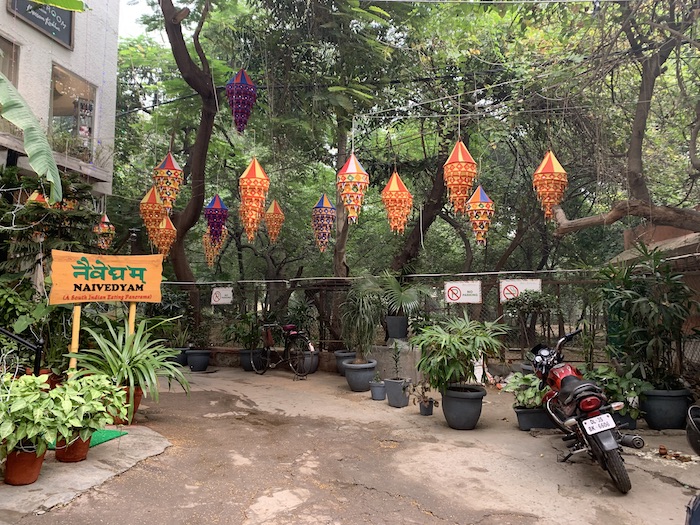
During my stay in New Delhi, I resided in the Sundar Nagar neighborhood in South Delhi, which is known for its safety and central location. However, the Airbnb accommodation I chose turned out to be quite expensive. Nevertheless, the experience of traveling is always a learning opportunity, and the initial sense of security was worth the cost until I became more familiar with the city.
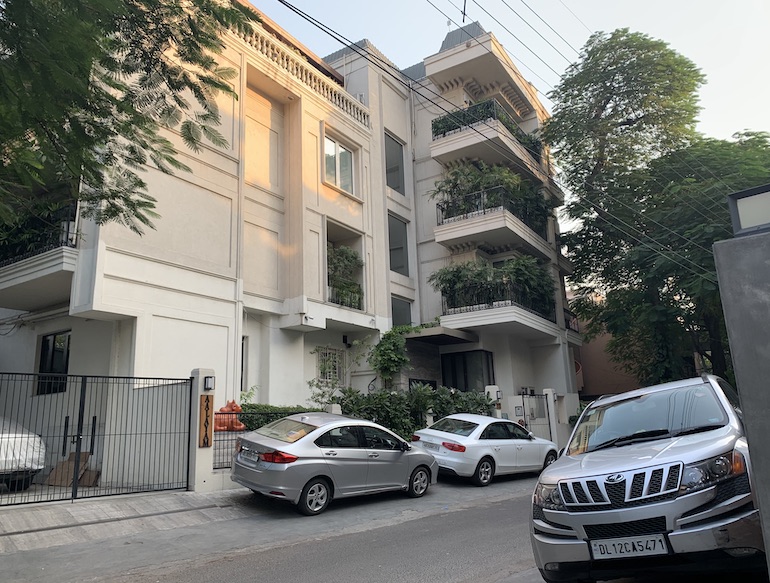
New Delhi is a city of contrasts with the haves and have-nots, old Delhi and New Delhi, the wealthy and the incredibly poor, queens and the lowest castes.
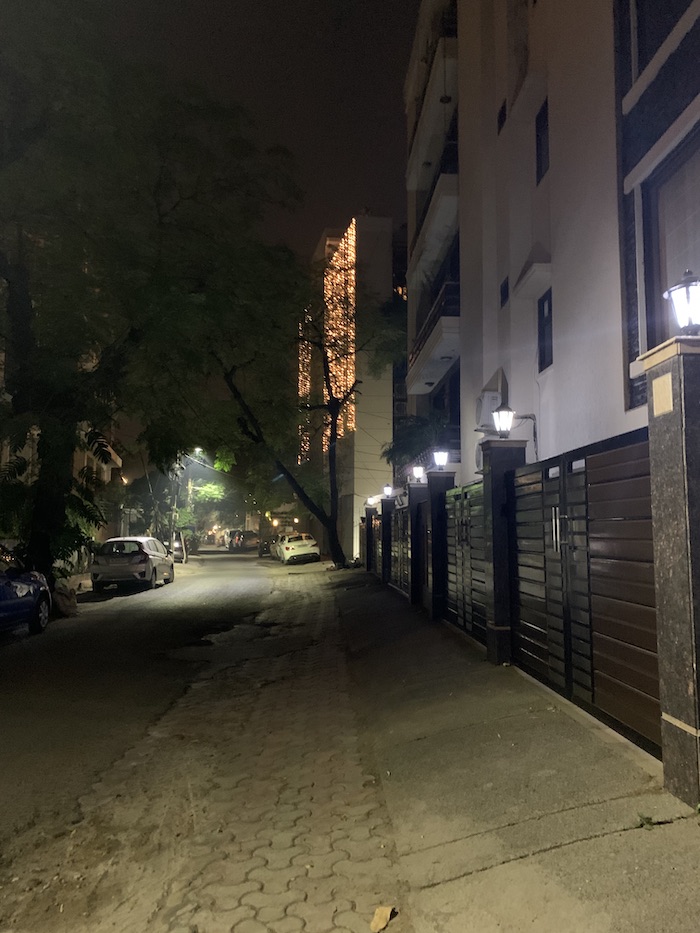

India understands that it has been named one of the most dangerous countries and is slowly trying to take measures to reverse the situation to some degree. I was delighted to see the signs on the back of tuk-tuks saying that the driver respects women. Women account for almost 50% of India’s 1.2 billion population.
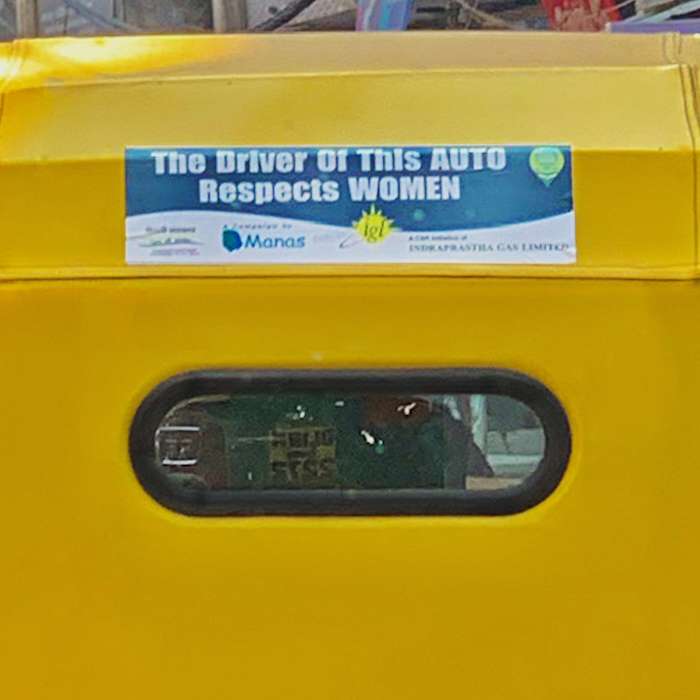
QTB COMPLEX
This is a complex of ancient buildings and monuments that follow a succession of dynasties and sultanates
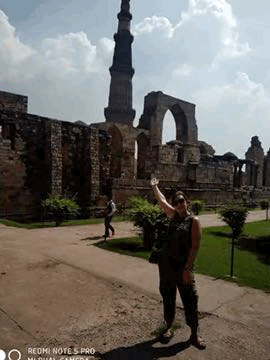
A succession of rulers kept adding monuments to the complex. Monuments have been and are being restored by great archaeologists! Let’s not forget that India has some of the best archaeologists in the world!

There is a mosque inside the complex that was built with the ruins of 27 Hindu temples.
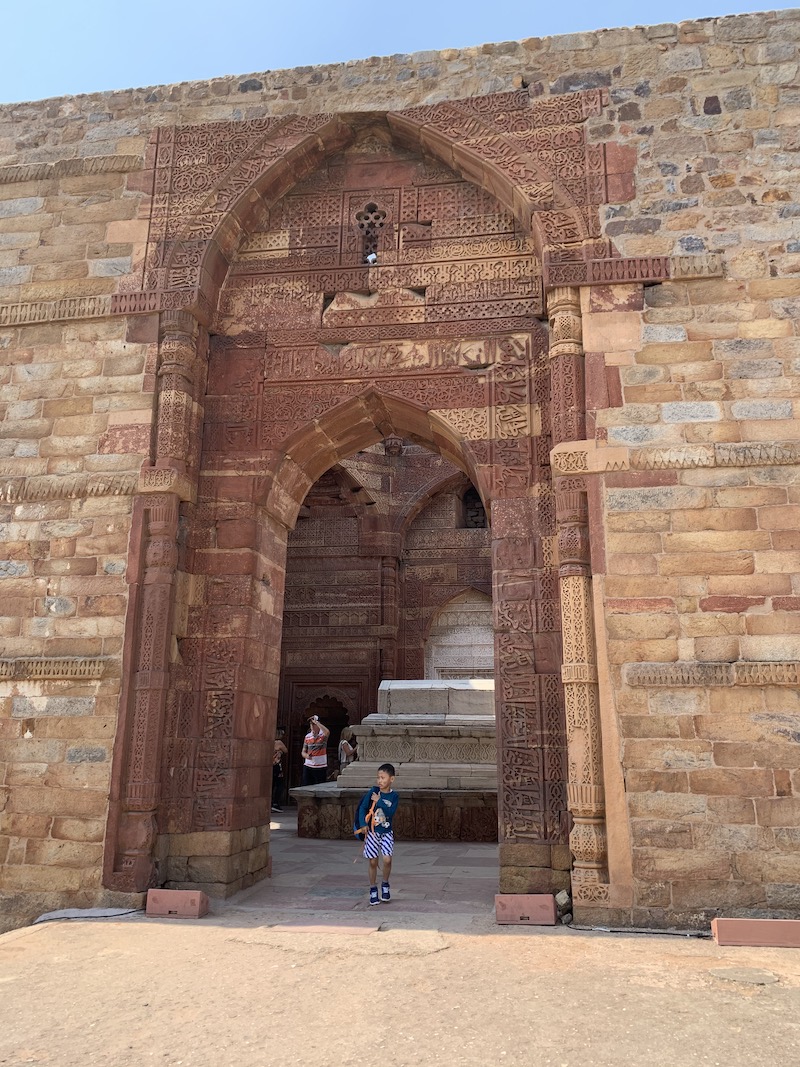
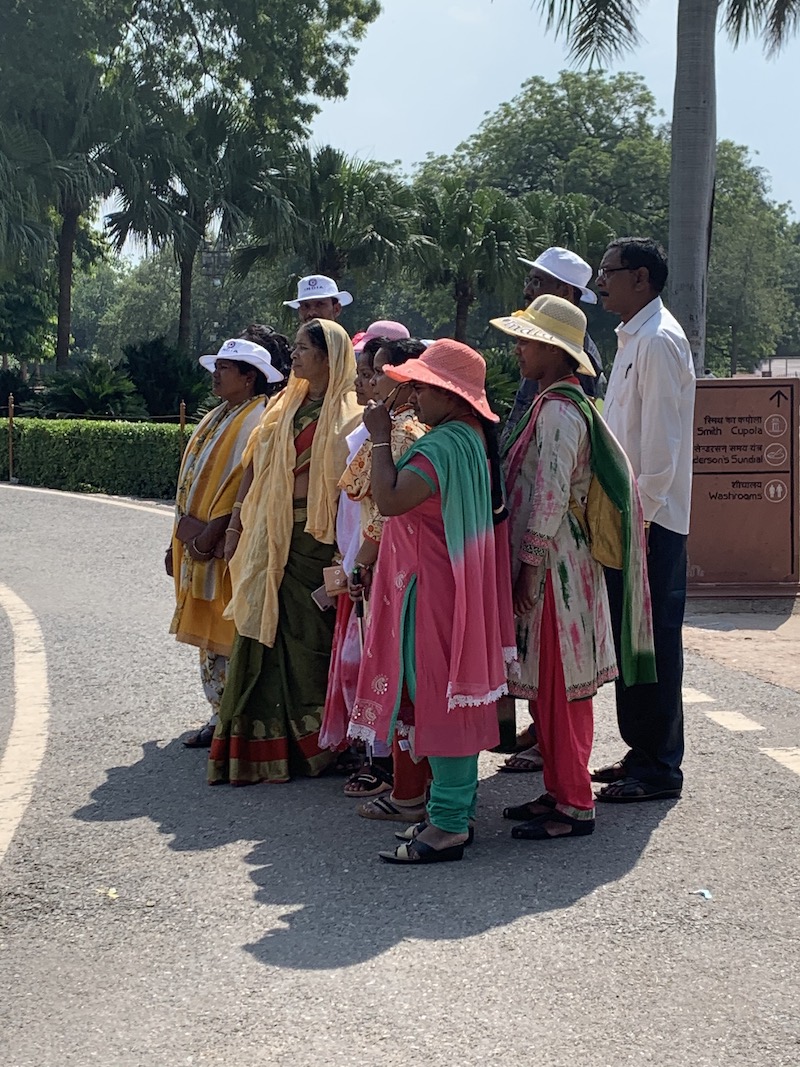
It is a great place to learn about the history of Northern India, its rulers, architectural styles, and religion. Everything is there. The best way to see it is truly with a guide.
Many school children visit the site each day to do the experiential portion of their studies. They do take time to take pictures and play a bit!

Old Delhi must be explored; it is like stepping back in time, with the glory and hardships of everyday life in front of you. Old Delhi consists of Central and North Delhi.
Central Delhi is the place of Jama Masjid, built in 1650 by a Mughal Emperor. It is the largest mosque in India, built with red sandstone and white marble, and it took 6 years to be completed.
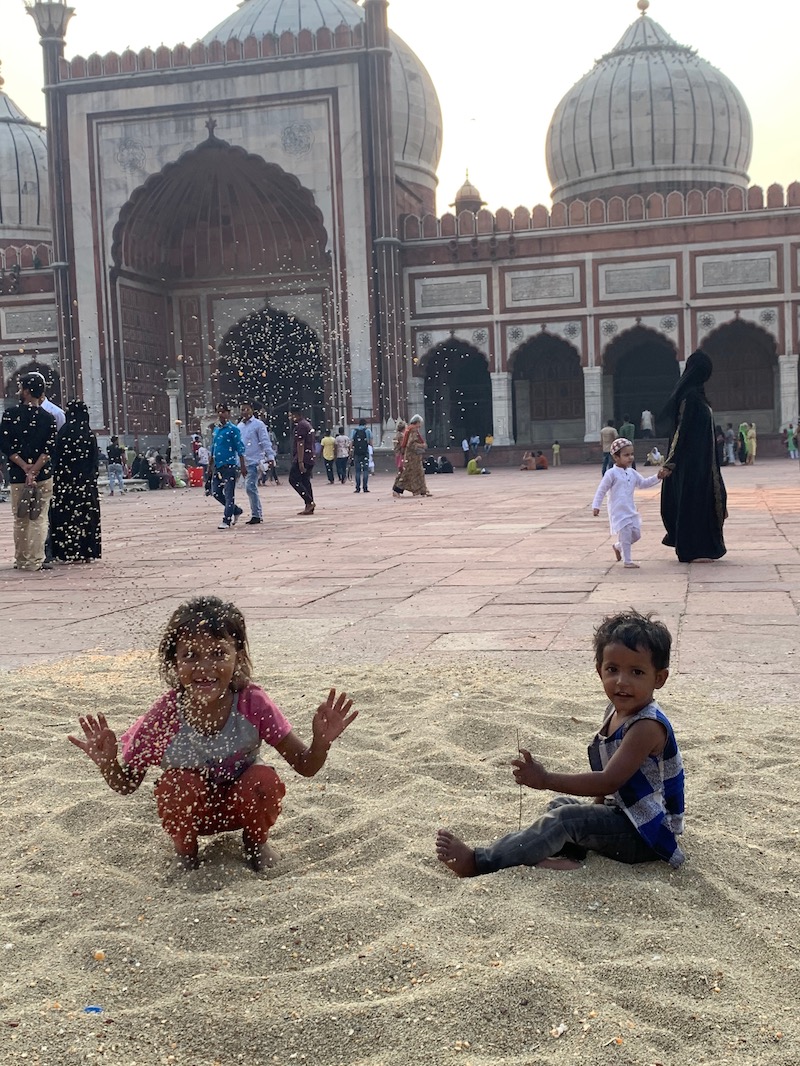
This is a very busy place and on Fridays, even busier because it is the day Moslems meet for prayer.
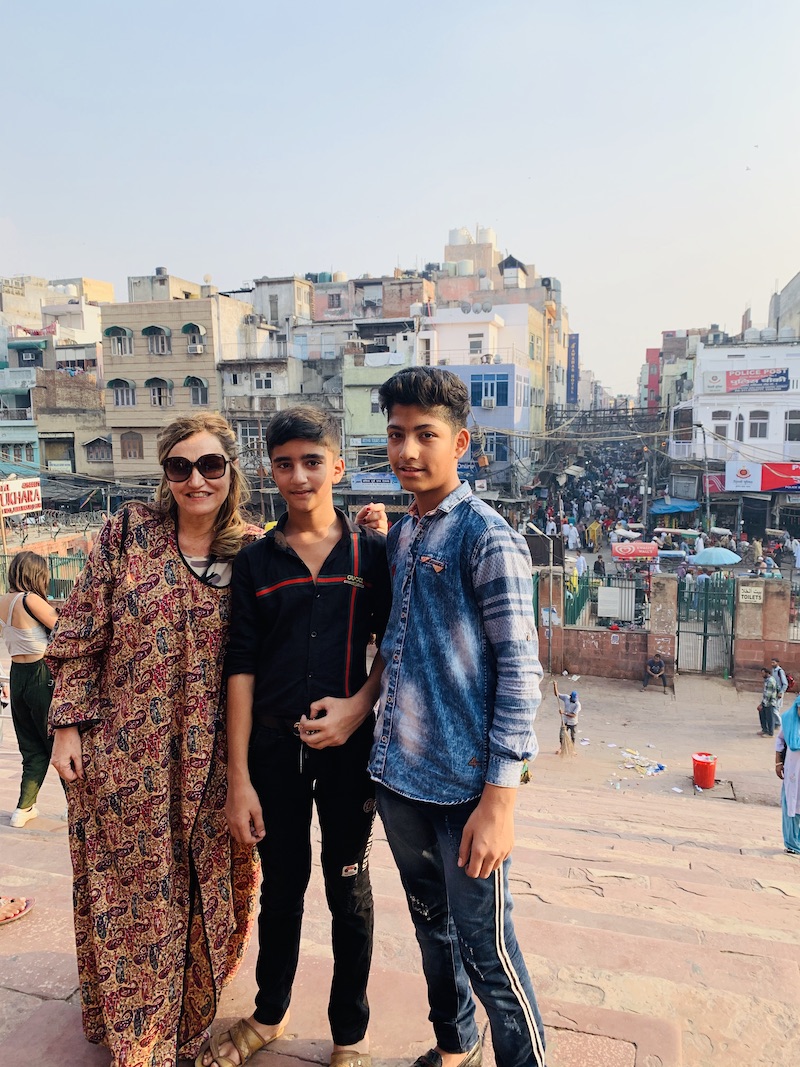
In the picture above the mosque overlooks the crazy busy Chawri Bazaar on the back.
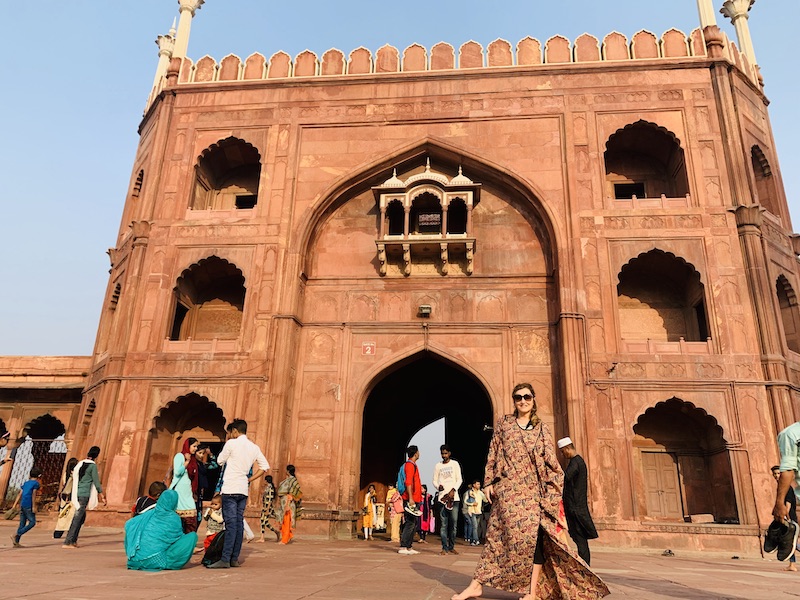
The Mosque is oriented towards Mecca, Saudi Arabia, facing the West. One of the most interesting points here is that it houses the ancient relic of Prophet Mohammed, a strand of his red beard!
CHANDNI CHOWK MARKET
Markets are one of the best ways to learn about the culture of a place. From the way people buy things to the items sold, to the smells of the foods and spices, they are all “candy” to our senses. This market exudes vibrancy!!
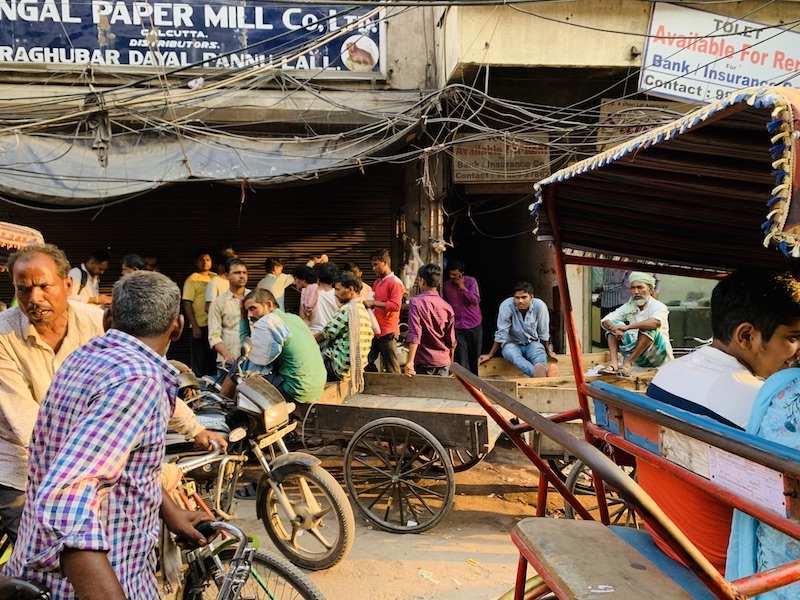
Chandni Chowk Market is one of the oldest bazaars, dating back to the 17th century, and the most chaotic I have visited. I explored the market for over 6 hours, and a couple of those hours were spent just trying to get out of traffic during rush hour with the tuk-tuk. It is so hectic and congested, but so worth my “exploration.” A word of caution: the market is not very pedestrian-friendly, so comfy shoes and a always-needed scarf must be brought along.
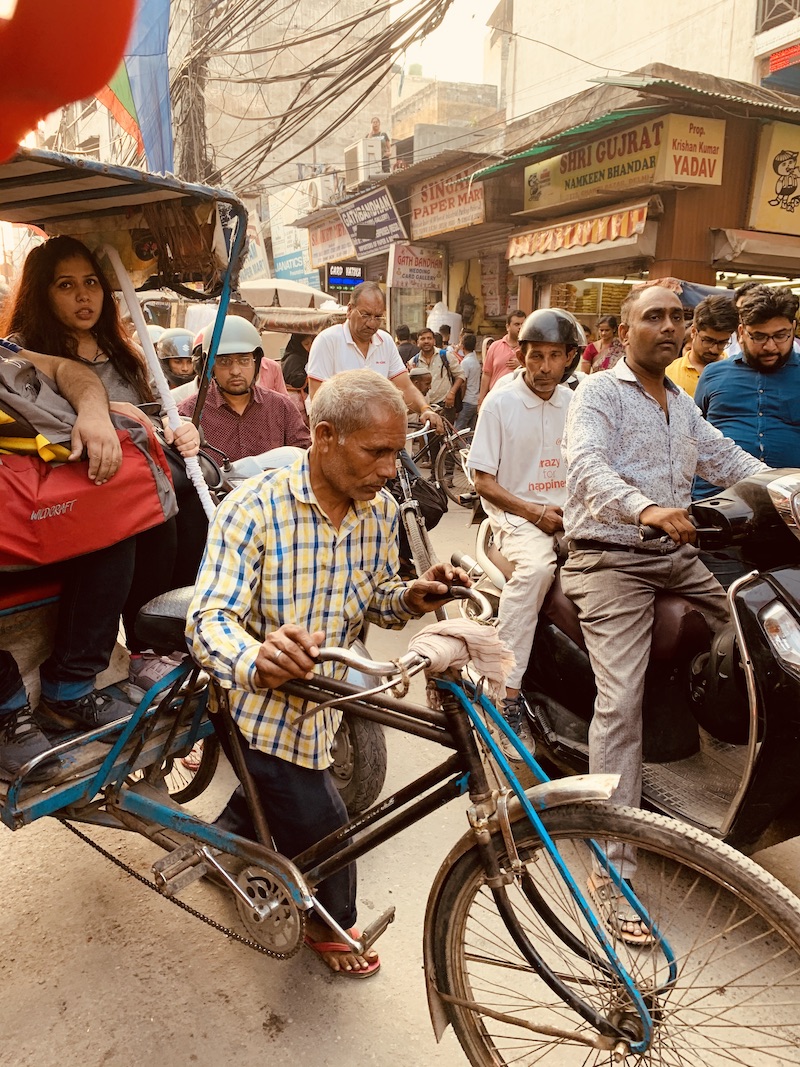
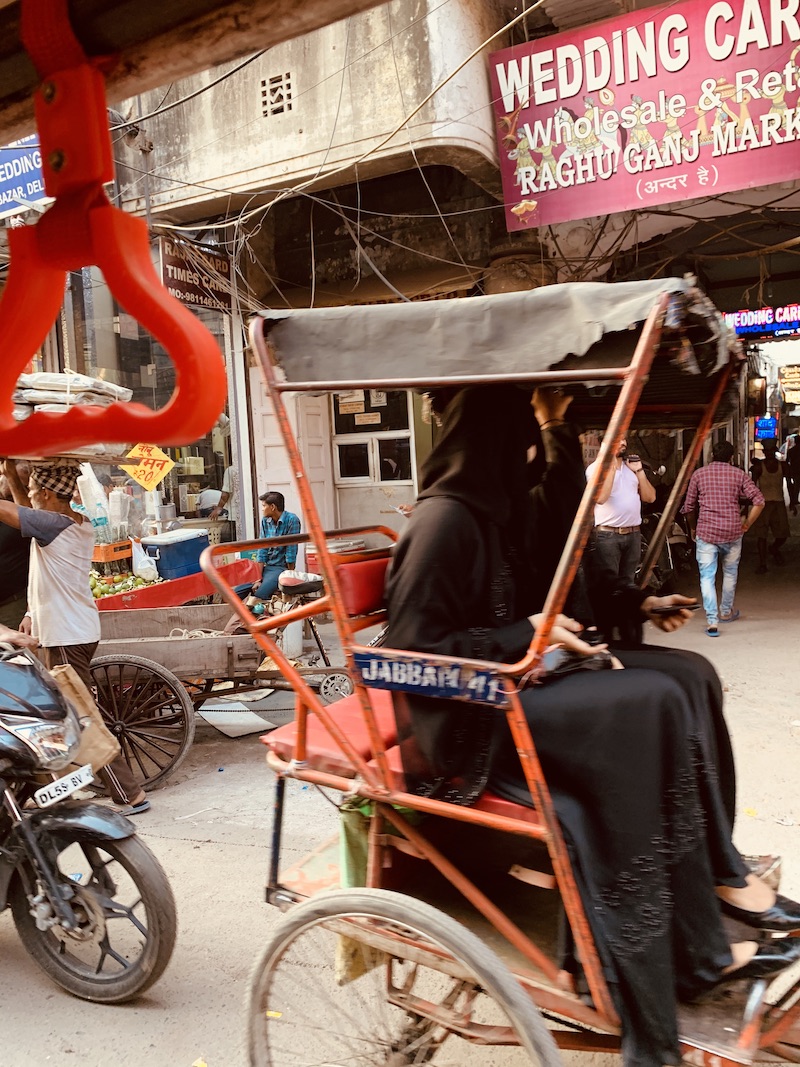
This market is a historical gem, it is well known for supplying anything one can think of buying. It is one of the largest wholesale markets in the country.
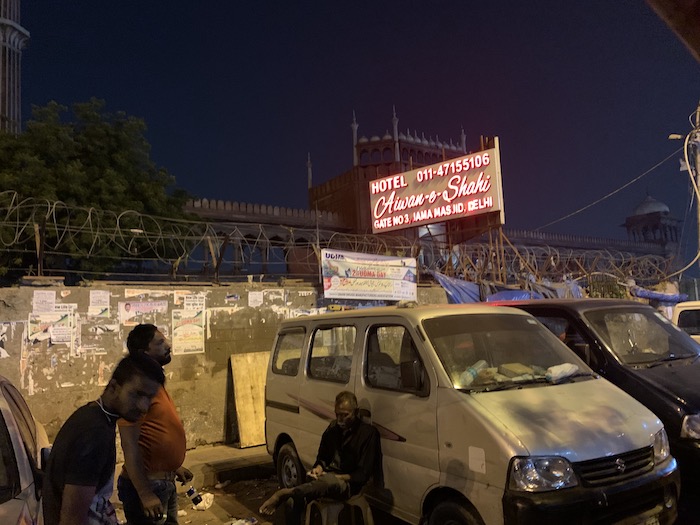
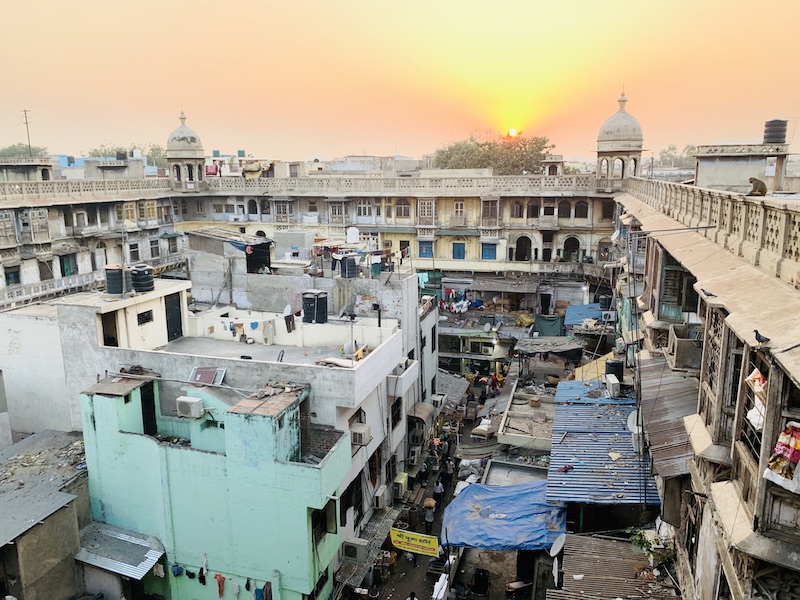
Here is a ‘Haveli’, a historical courtyard that is still surrounded by rooms and an upstairs where many working people live today. Folks cook on the roof with firewood, leading to a very harsh life compared to some Western standards of living.
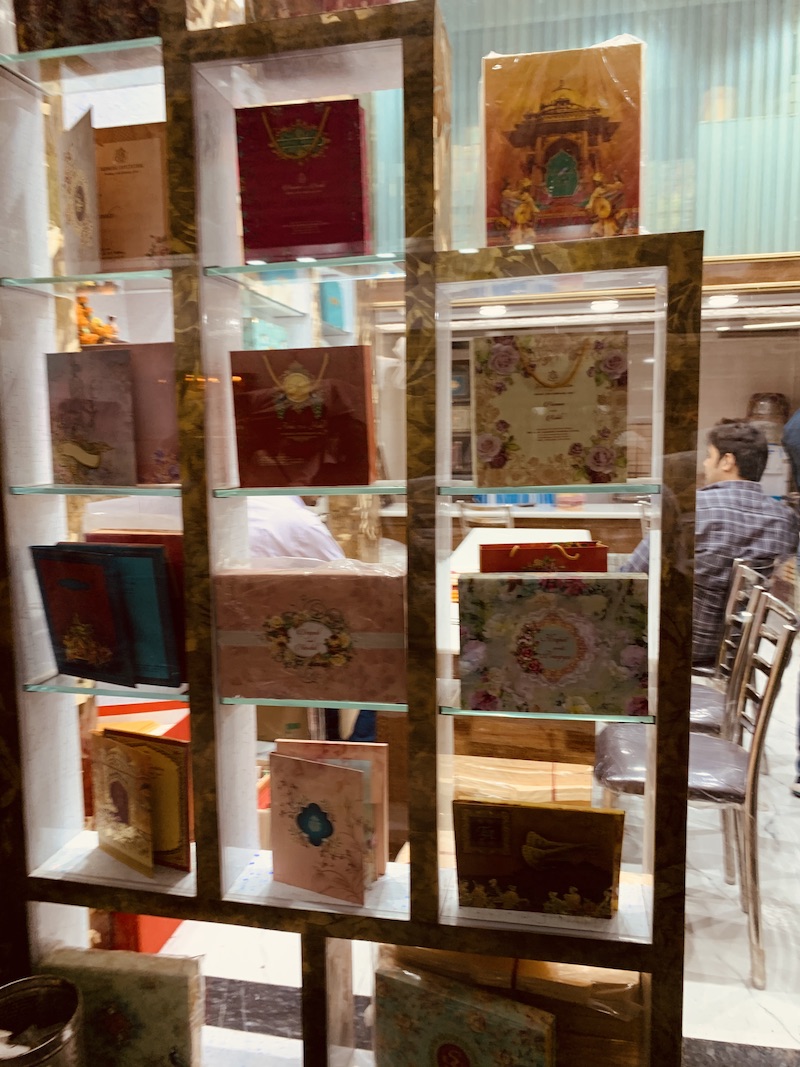
The market is divided into sections where one can find different products. The most beautiful stationery I have seen in my life, truly, is available in the NAI SARAK section of the market. Here you can also find a large range of books.
Rishikesh
It is a city in the foothills of the Himalaya Mountains right along the Ganges River in the state of Uttarakhand. The views are breathtaking and without a doubt a sacred place. It is the birthplace of Yoga.
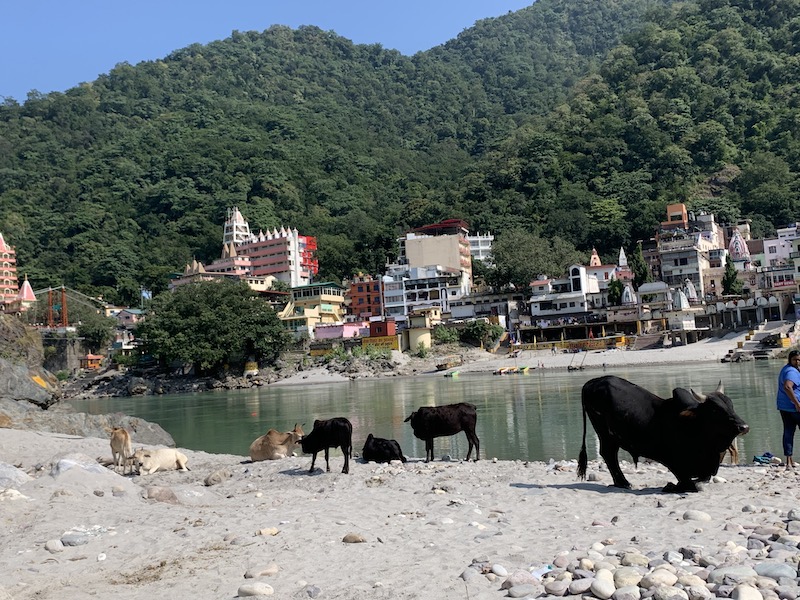
It is well known that people from all around the world come to the Ganges, considered a sacred river, to wash away their sins. It does look crystal clear; however, I have talked to locals who found strange things in there. I took a nice dip in the water but washing my sins? would not be easy that way???
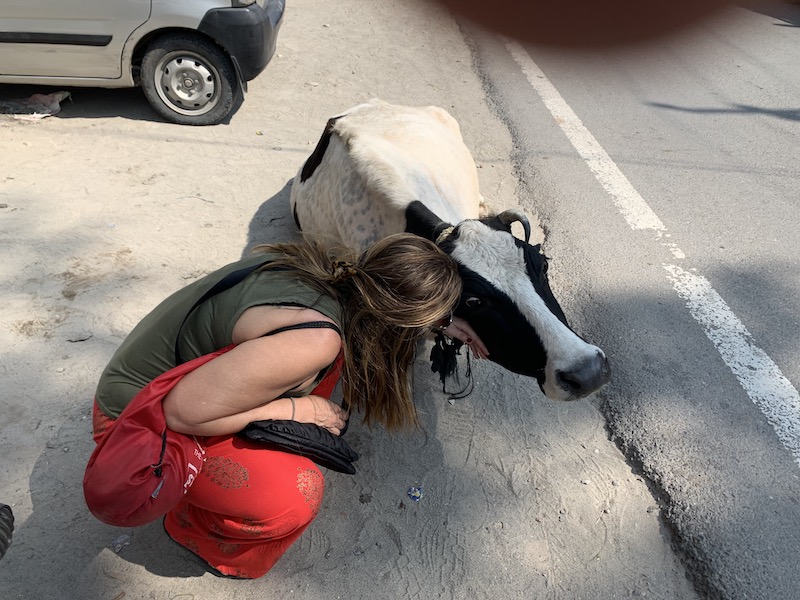
I found Rishikesh to be incredibly touristy. The city was full of yoga centers that looked like a big shopping center for yoga training places. I was told that other yoga centers outside of the city were less commercial, but I can’t attest to this yet.
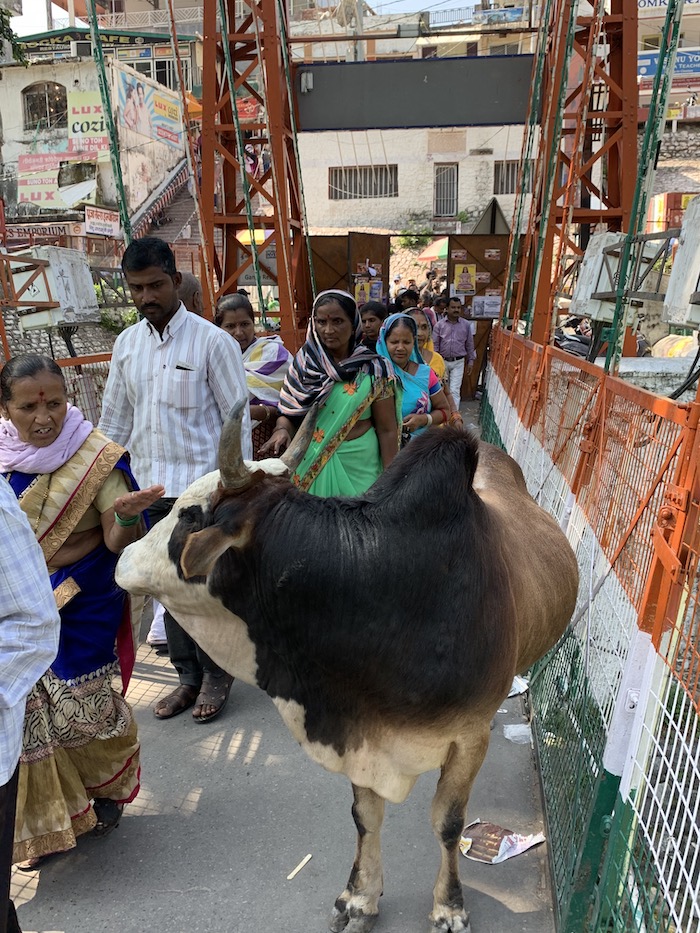
The 450-foot-long Laxman Jhula is the hanging bridge that is a must-pass. The bridge links two towns across the Ganges: Tapovan on the west side and Jonk on the east side.
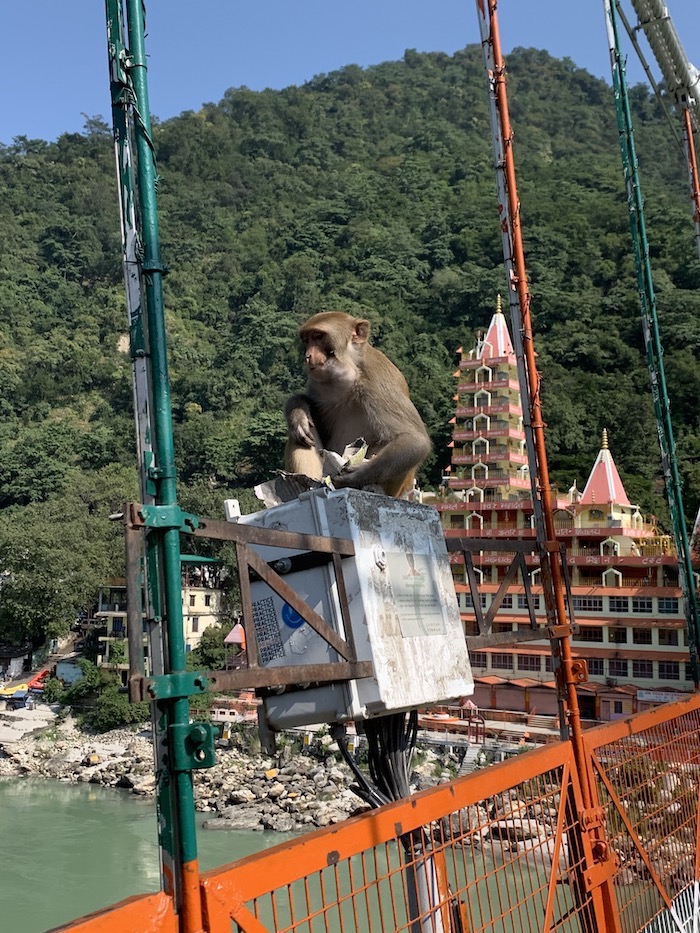
Be ready for congested traffic of people and animals such as cows and Baboons and other monkeys
GURDWARA SRI HEMKUND SAHIB
This is a real sanctum of Sikhs. This is the place where Sikhs serve tea and langar all day. There are also small floats with Sikhs leaving the same place followed by believers who stroll with the parade. The Sikhs give apples along their way.
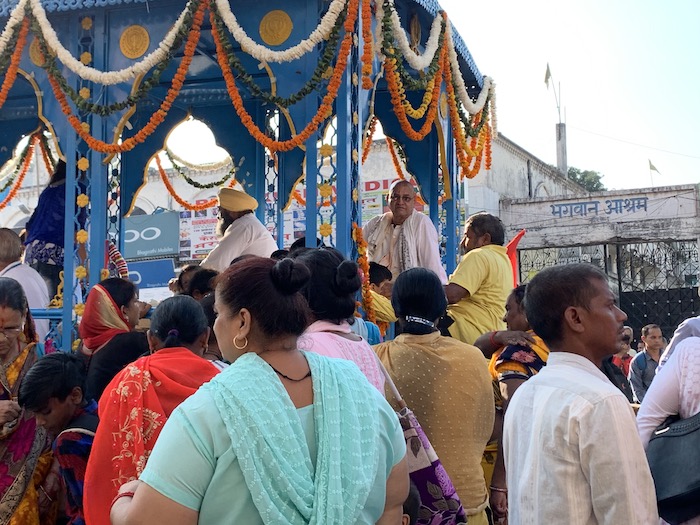
HARIDWAR
Triveni Ghat is an important landmark and pilgrimage site for people from all around the globe. It is a sacred place at the confluence of the Ganges, Yamuna, and Saraswati rivers. It is said that anyone taking a dip at this place washes away all sins. The ceremony and views are fantastic in the afternoon, and watching the sunsets gives a higher meaning to the whole experience.
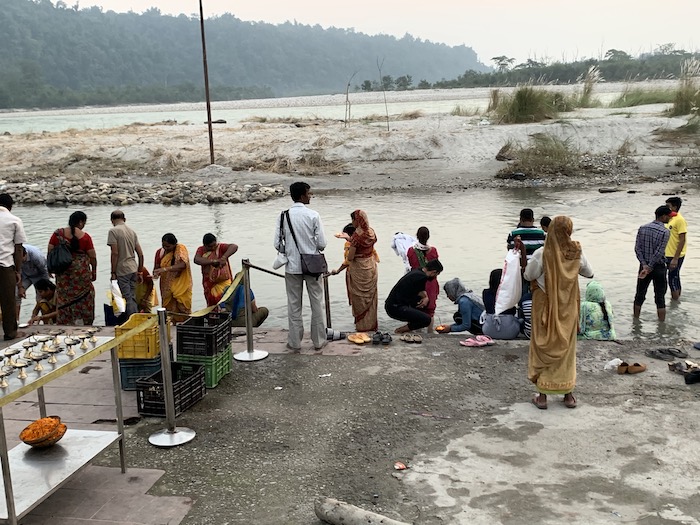
Not to be missed at Triveni Ghat is the ceremony called “Maha Aarti.” This is a religious Hindu ceremony that involves an offering to the Goddess of the river Ganges in this case.
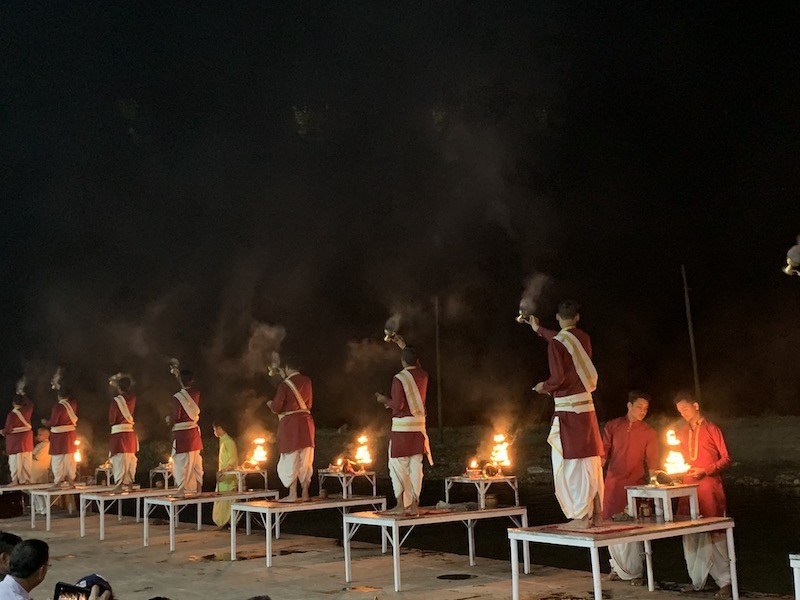
A large number of beggars are found after the ceremony just outside the entrance.

Jaipur
There is so much to see here; it is a very important city and the capital of the Indian State of Rajasthan. It is called the “Pink City” for the color of its buildings. A Maharaja (a Prince) ordered the city to be painted in pink to welcome the King and Queen of Wales.
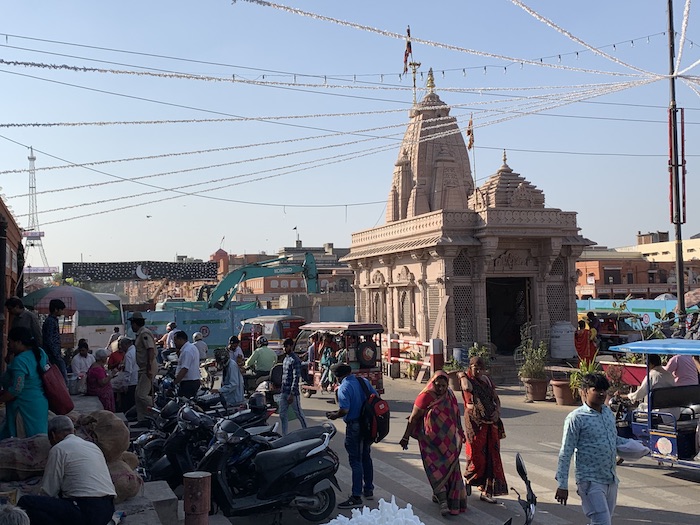
One needs time to visit all of the cites the right way. From historical sites to markets to natural heritages….hands full!! I spent over a week in this beautiful place.
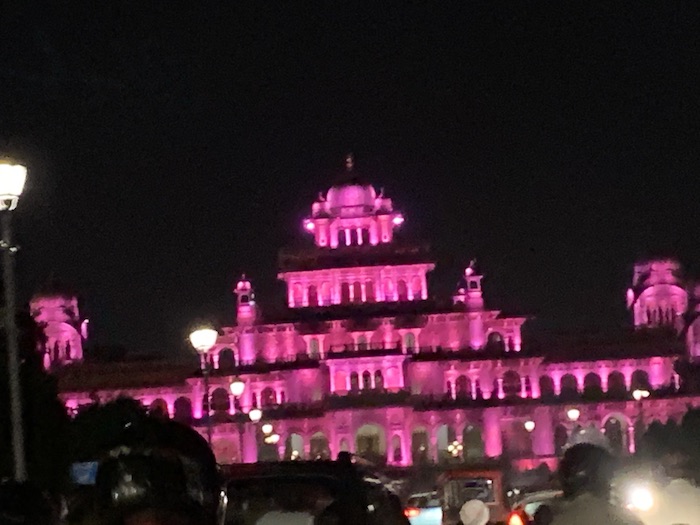
One can feel the allure of the Indo-Persian style all around this city. UNESCO considers the city as a World Heritage site.
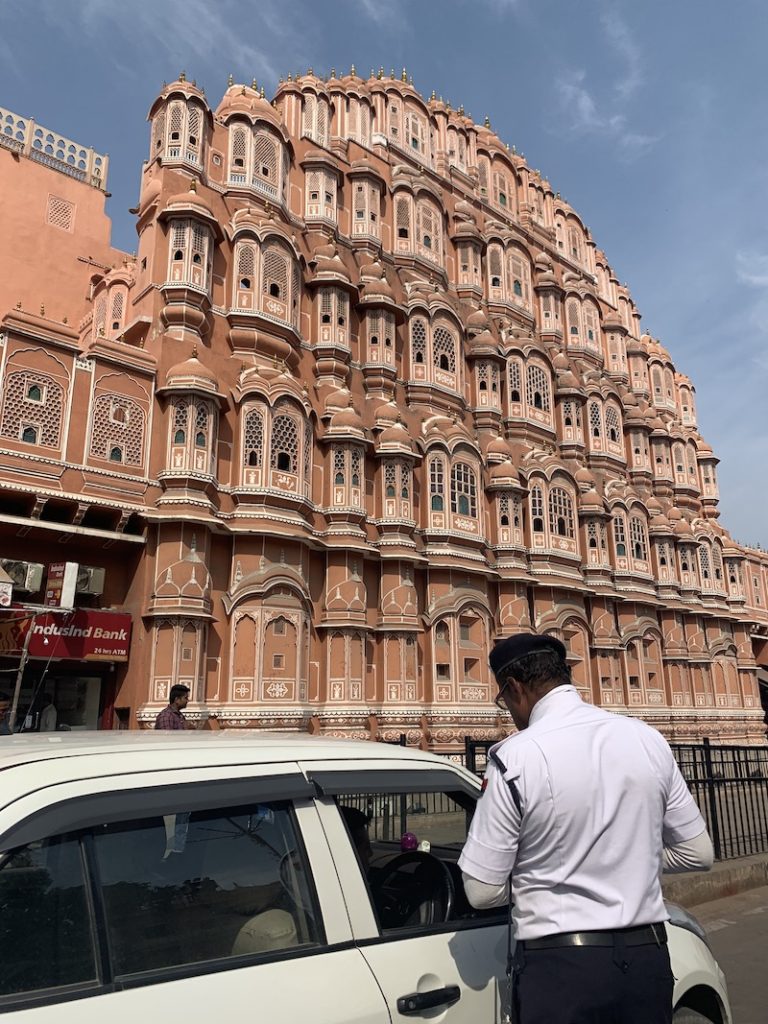
The Hawa Mahal is an old palace made with red and pink sandstone in the 1700s. This palace was an extension to the City Palace.
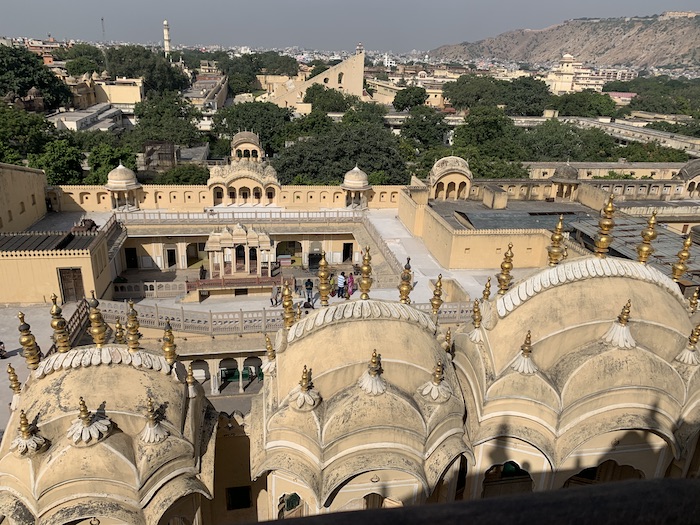
It was called the “Palace of Breeze” because of the way it was built, it was possible to get a great breeze.
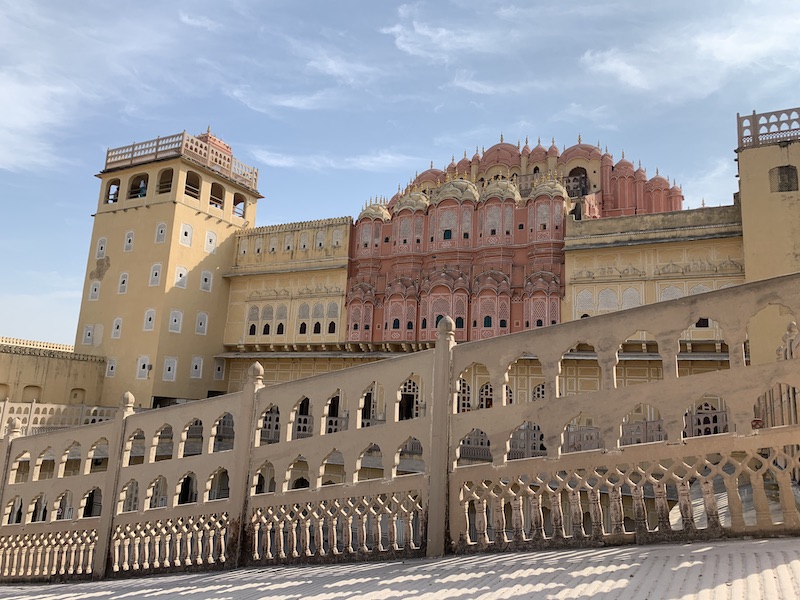
The area was built so that the royal women would not be seen in public with peepholes in the casements so that the ladies could peep out but nobody would peep in!
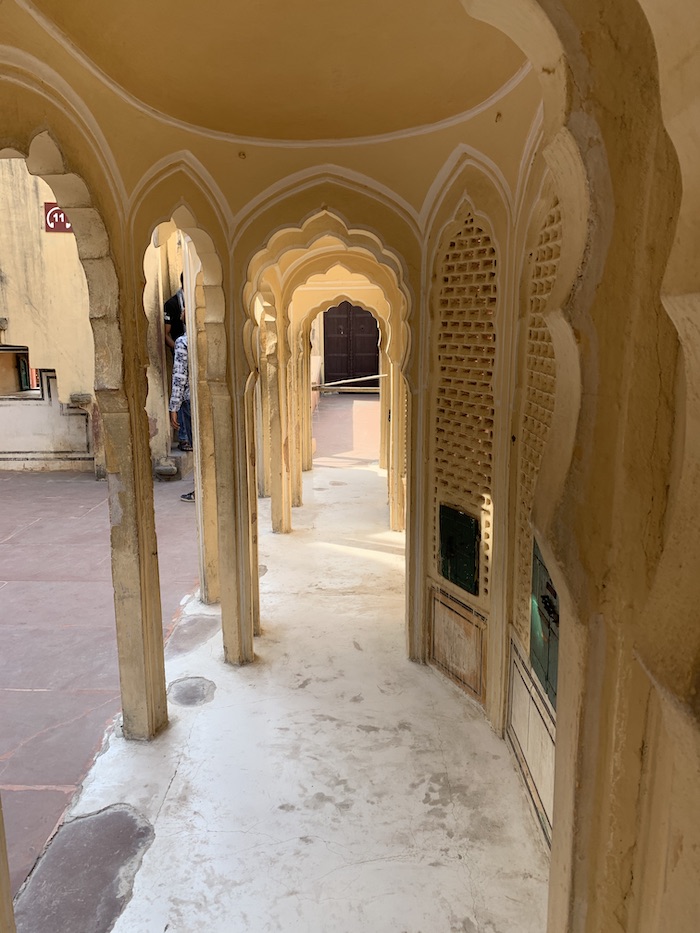
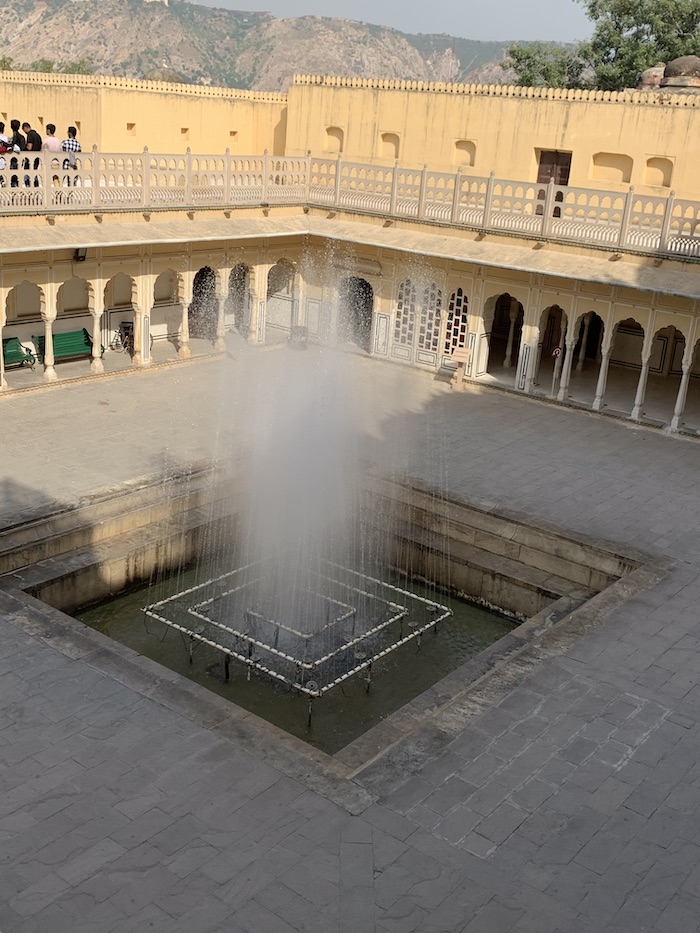
So much for the ladies having to peek out of the palace for many years. Here I am with these wonderful Indian gentlemen all by myself, without having to peek out!

MAHARAJA SAWAI MAN SINGH II MUSEUM CITY PALACE
What can I say? Another gem…so much to see and learn here. This place was founded by the Maharaja with the same name, Maharaja Sawai Man Singh. There are many courtyards and buildings in the palace compound.
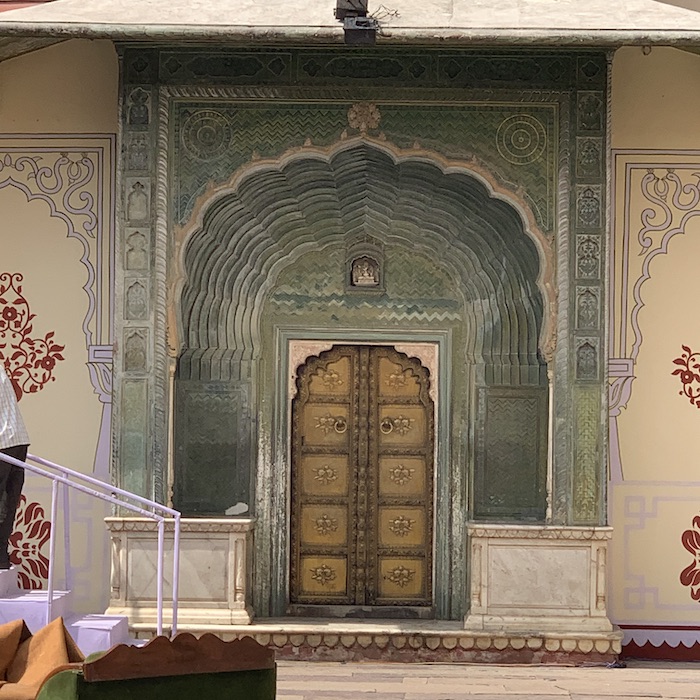
The Palace started construction in the 1700s with a very ambitious project that was followed by the Maharaja’s successors. The whole Palace was a major center of activities of the court and with religious temples, a place of worship.
The Palace is an important place to celebrate a Rajasthani festival such as Gangaur, with the procession of the Goddess image from the Palace to the city. Gangaur celebrates love, marriage, harvest, and fertility.
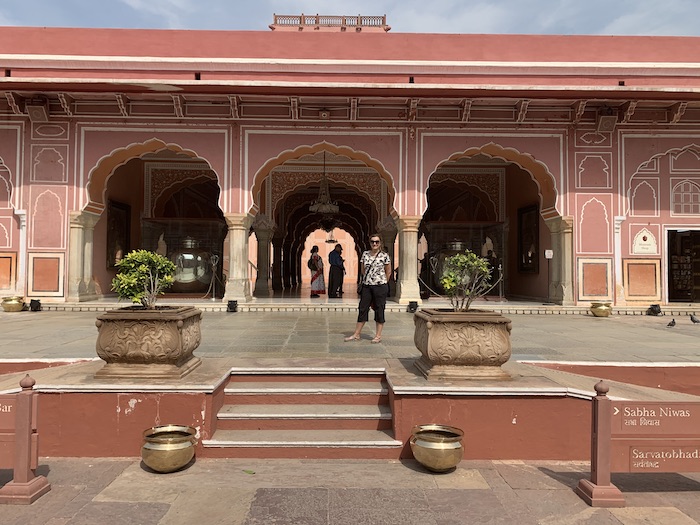
The royal family of Jaipur lives on the premises and the family is said to be descendants of Lord Rama.
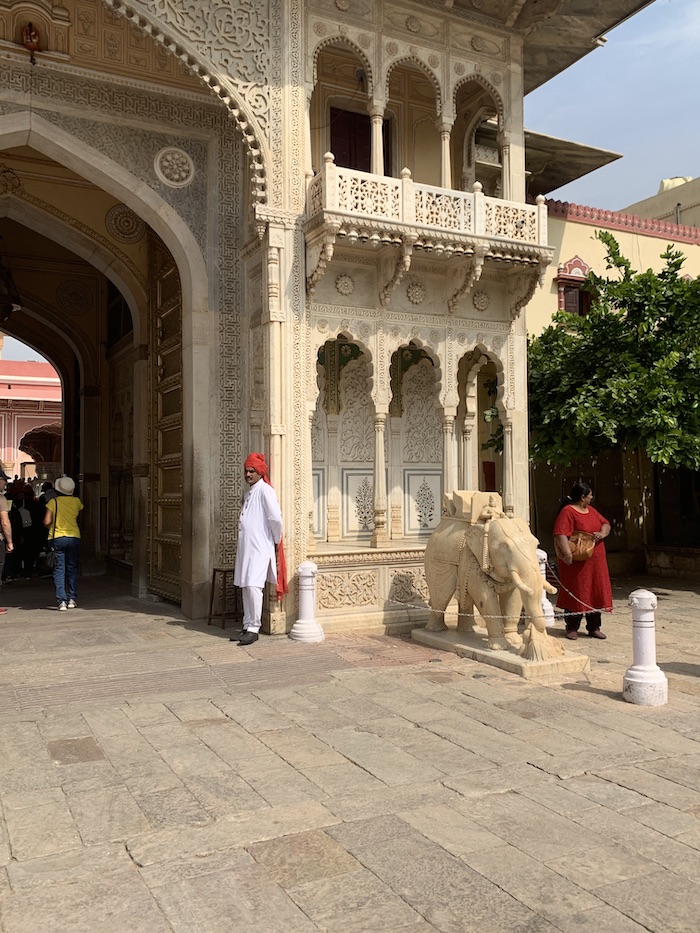
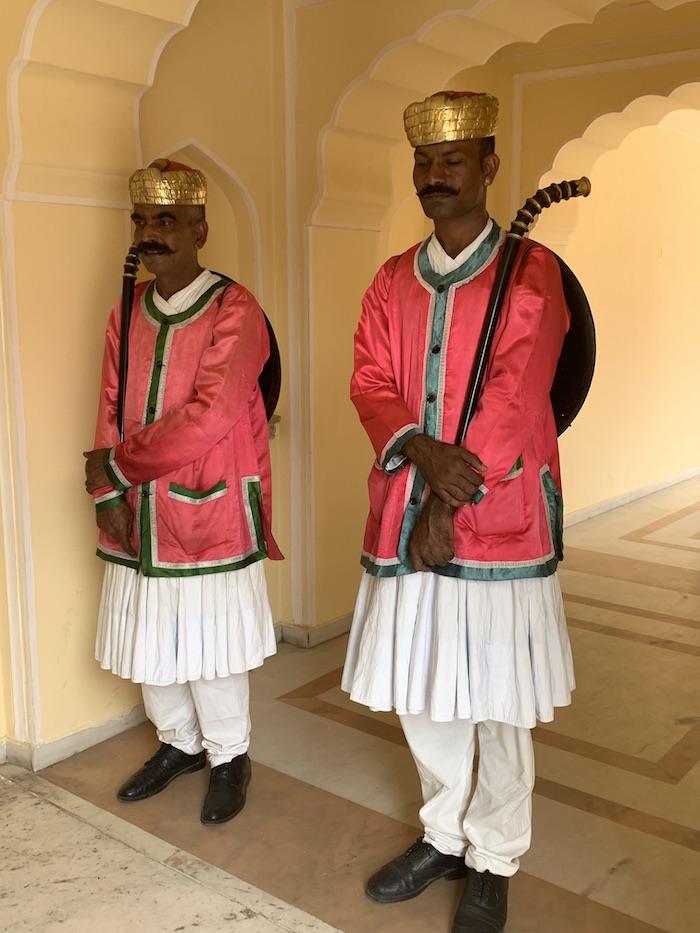
It will take hours to enjoy the visit that offers the display of artifacts, historical documents, ancient statues, and paintings, etc.
THE SUN TEMPLE
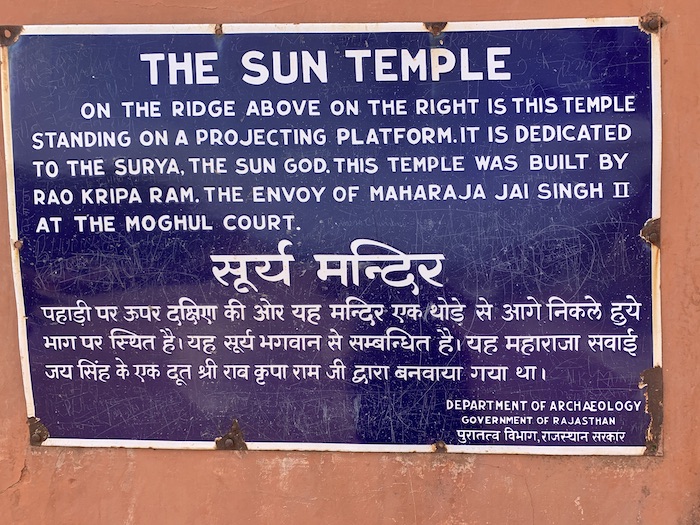
This small Hindu temple is situated in the Aravali Hills and is dedicated to Lord Sun. It is not the most important temple, but for me, it offers a different type of setting.
It is important to know that as soon as tourists get off their vehicles, locals will come demanding money to “protect you” from the monkeys. I refused to take the bait, and the kid got very upset and started cursing at me. So much for needing so much protection! I am alive and kicking. Never feed monkeys!
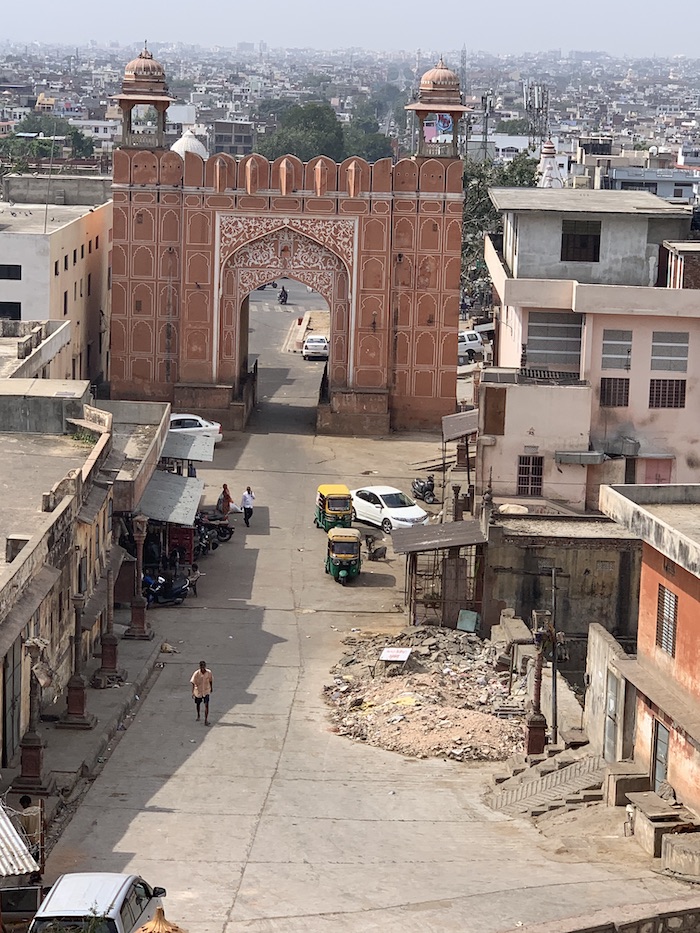
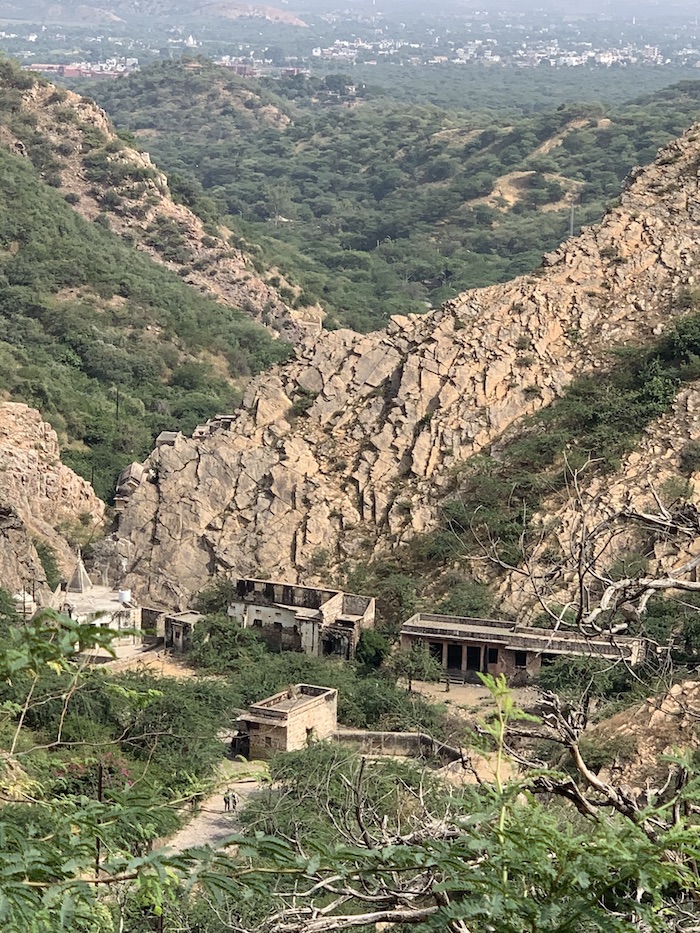
An interesting hike up the hill to get to the temple. Be aware that it gets pretty hot so it might be a good idea to take lots of water, comfortable shoes and a hat.
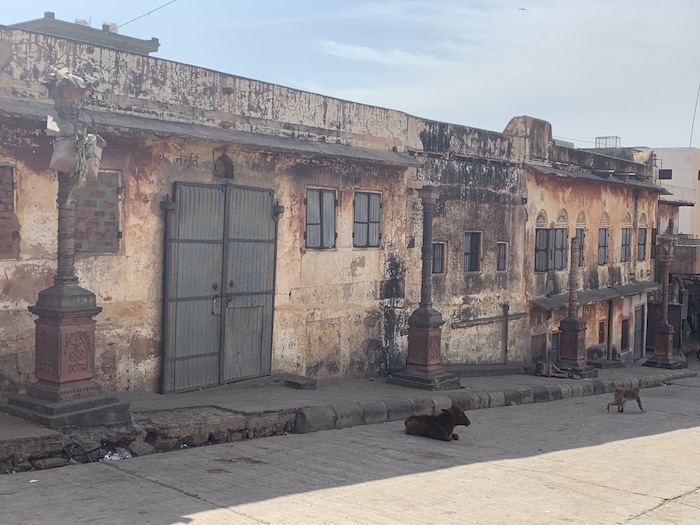
The temple is crowded during sunrise and sunset which is the time for Hindu rituals and prayers. Small places for prayers are found on the way up to the temple.
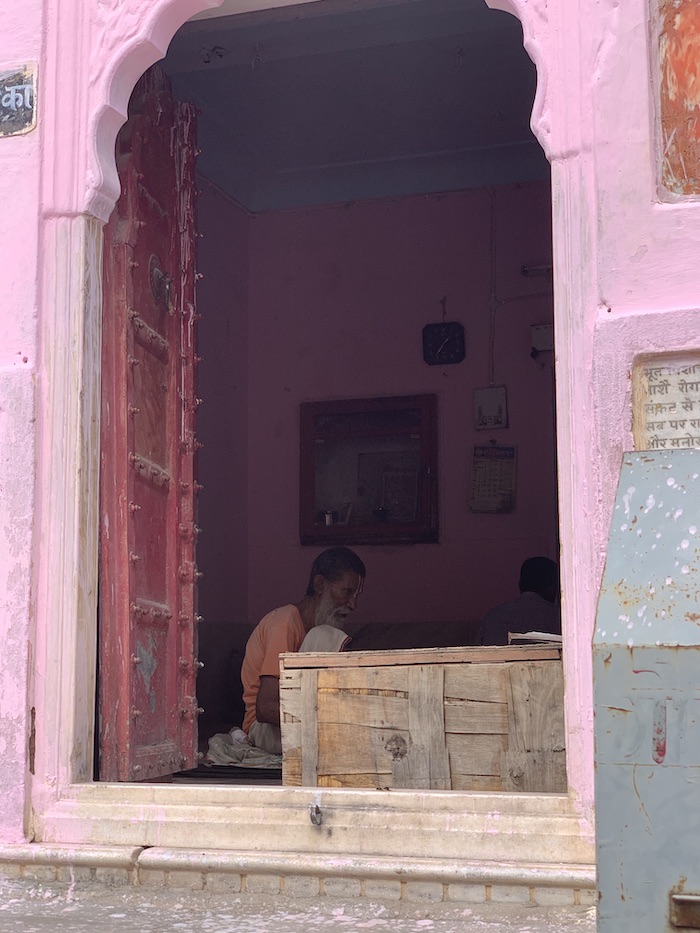
The temple was founded by a private courtier in the 18th century.
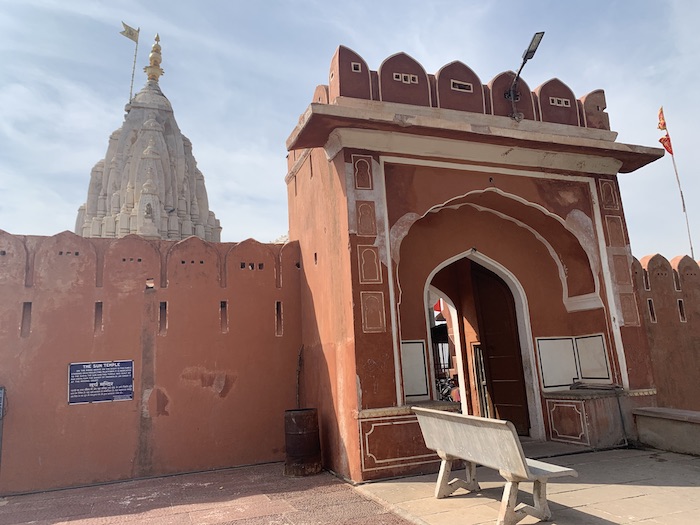
In my opinion, this is the spot for one of the greatest views of the sunset in Jaipur.
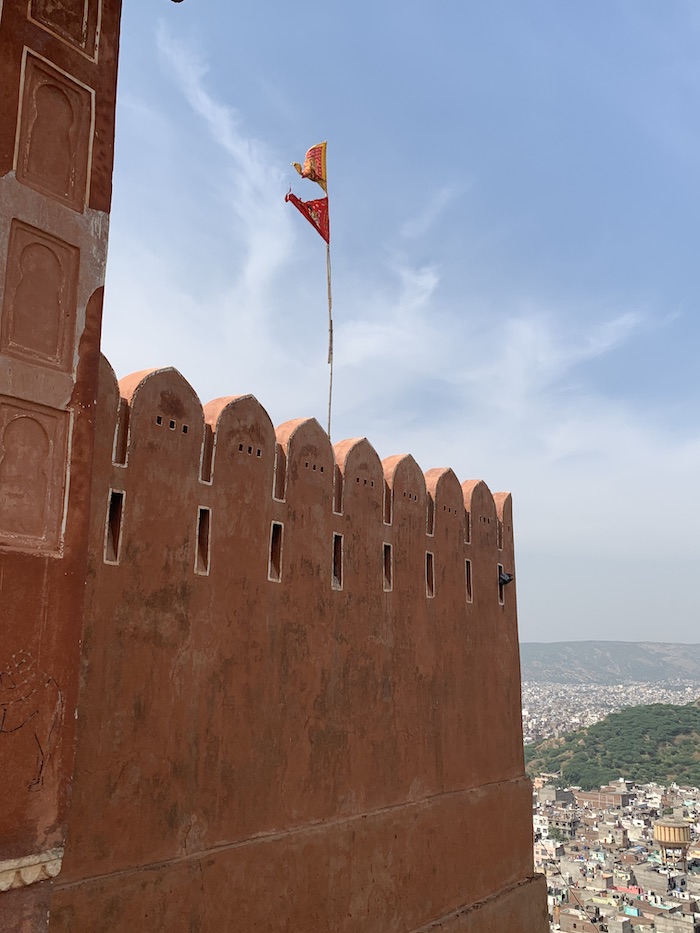
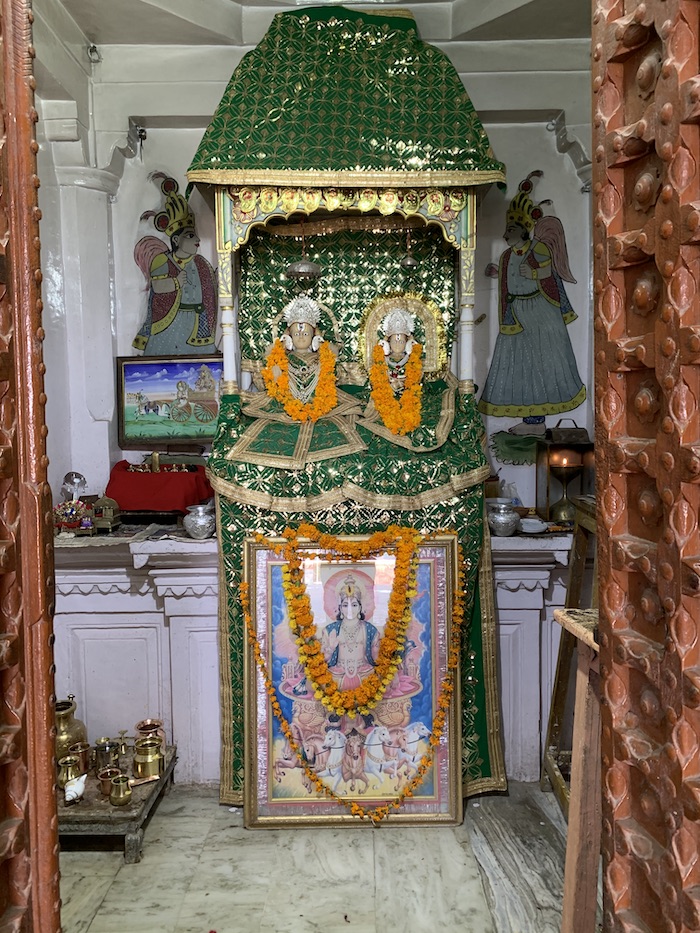
MARKETS
Jaipur is truly a market galore! Jaipur markets are vibrant, full of color, smells, and sights. One can find any type of market, and bargaining skills are a must. I admit that I am pretty bad when it comes to bargaining – even after so many years of being on the road. I can’t seem to have all the patience needed to get that very best deal yet!
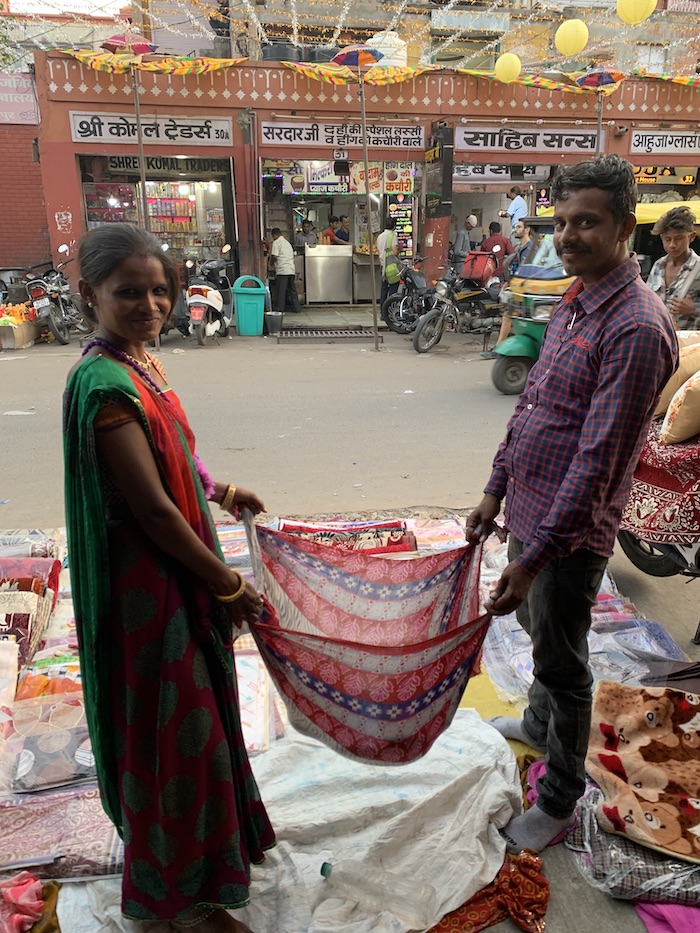
Street Vendors
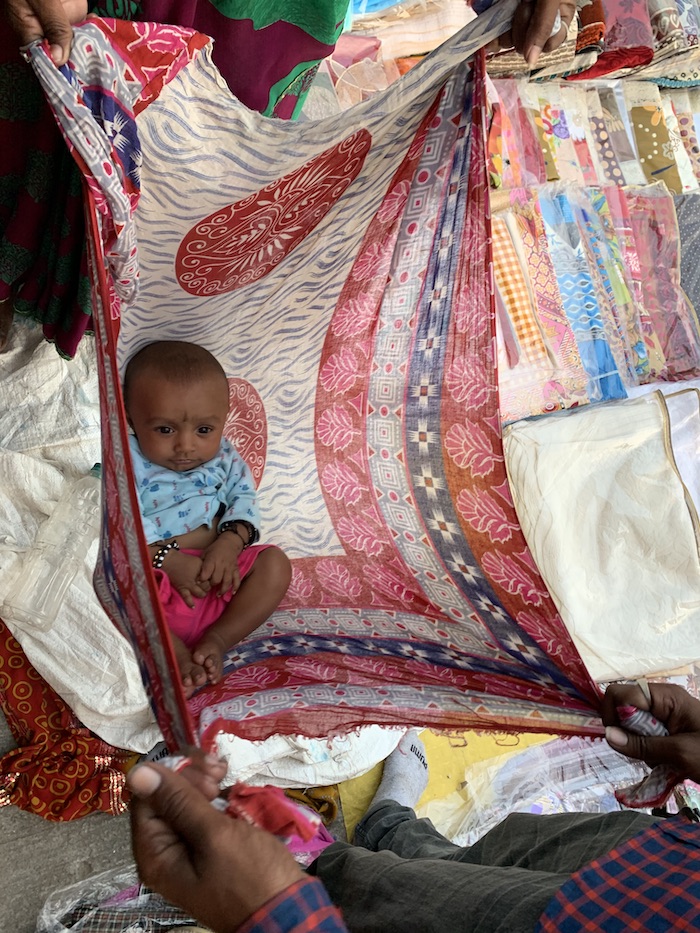
and their baby
The bazar is arranged by the type of item that is sold, so it is easy to find different items.

Johari Bazar is the most popular market located outside the Hawa Mahal. Johari means “jeweler” in Hindi. There are hundreds of shops in the bazaar where one can find wedding attire, pottery, jewelry, paper goods, and spices. You name it, you have it. There is an overwhelming range of goods, but I have seen some of the most beautiful gems and jewelry here in my entire life.
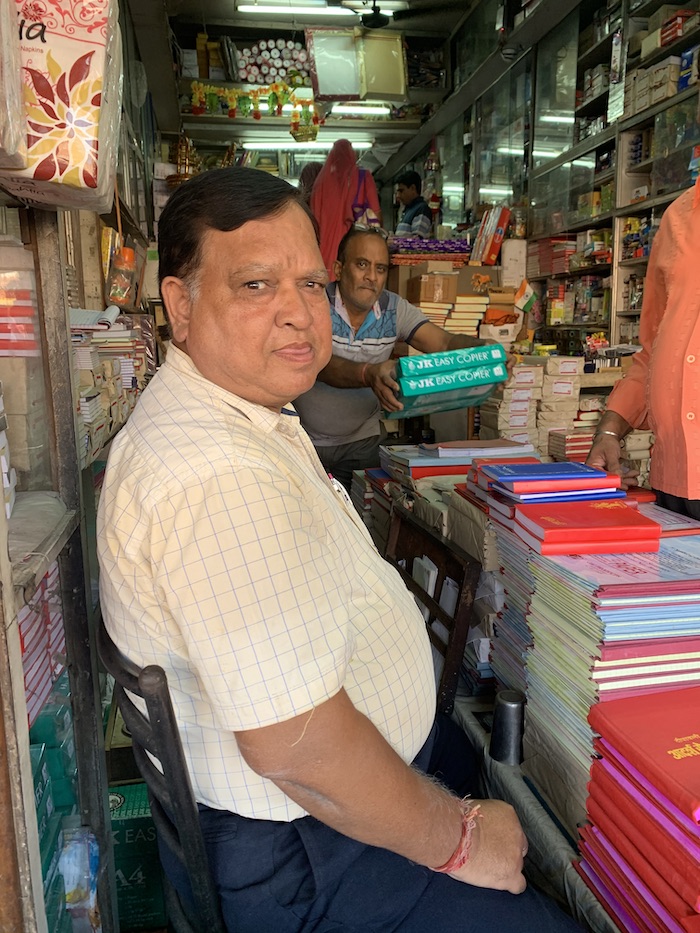
The owner of a child labor free shop. Support this business if you are there.
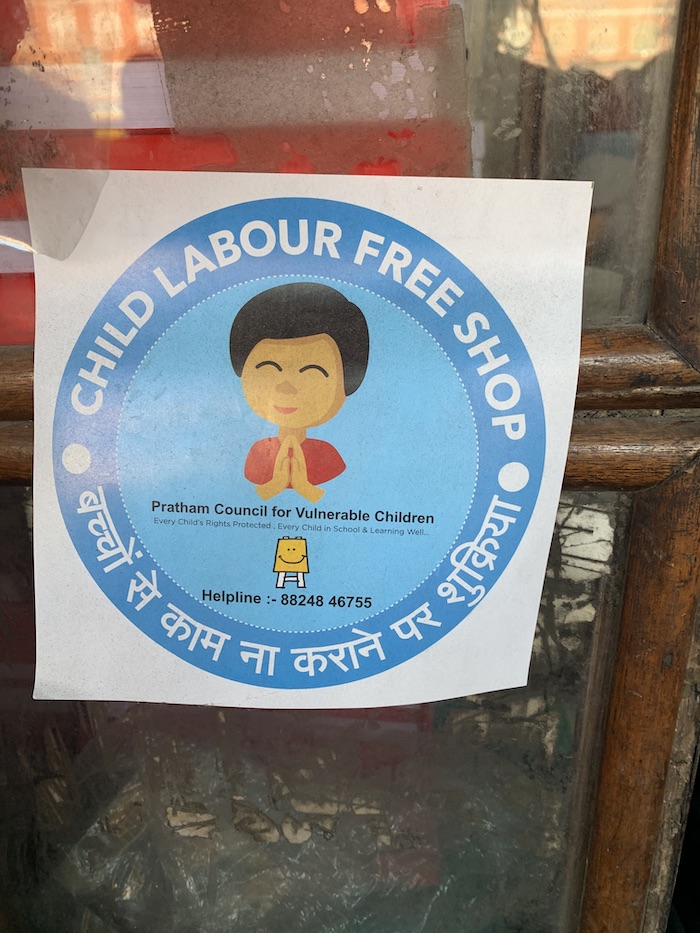
Go India!
Even though India is one of the fastest-growing economies, the contribution of Indian women to the workforce is one of the lowest in the world.
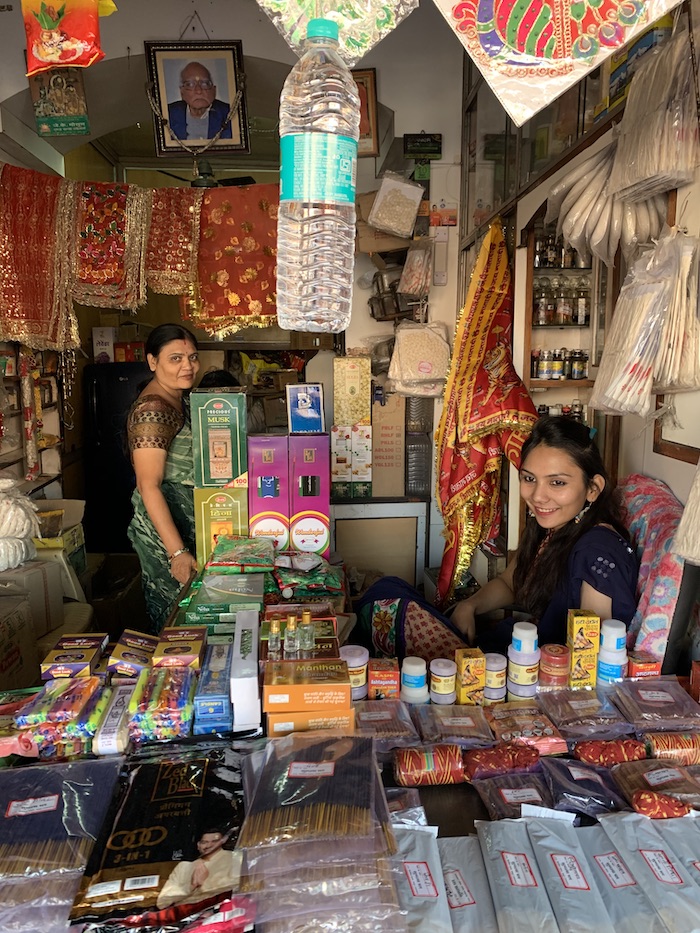
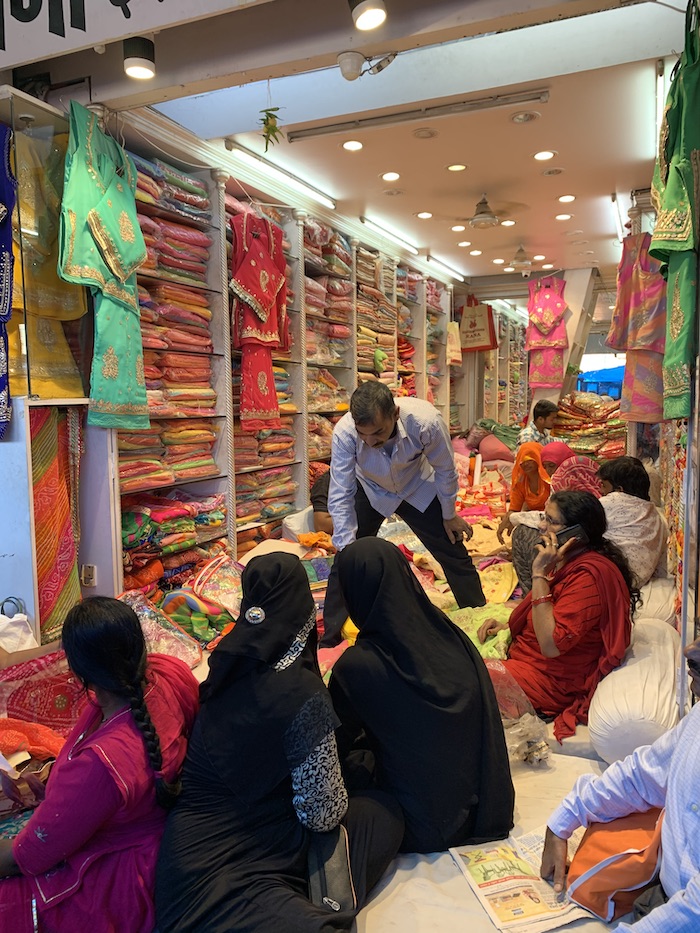
The majority of women in India work in the informal sector, which is not recognized by the formal sector. Women in this sector perform low-paying activities without any assistance or monitoring from the government. Yet, they are a significant part of the economy of a highly populated nation.
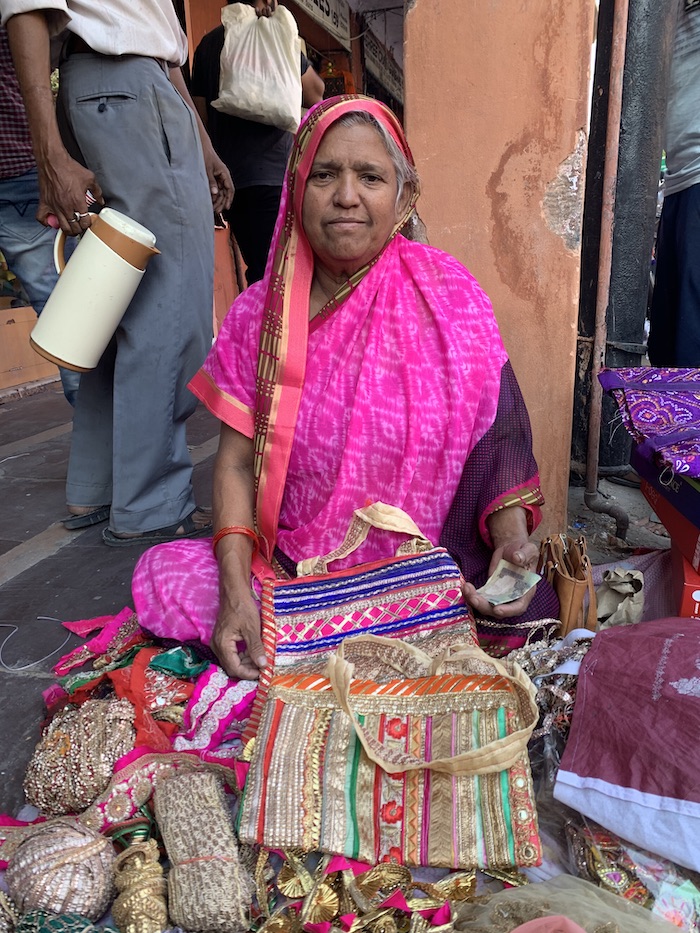
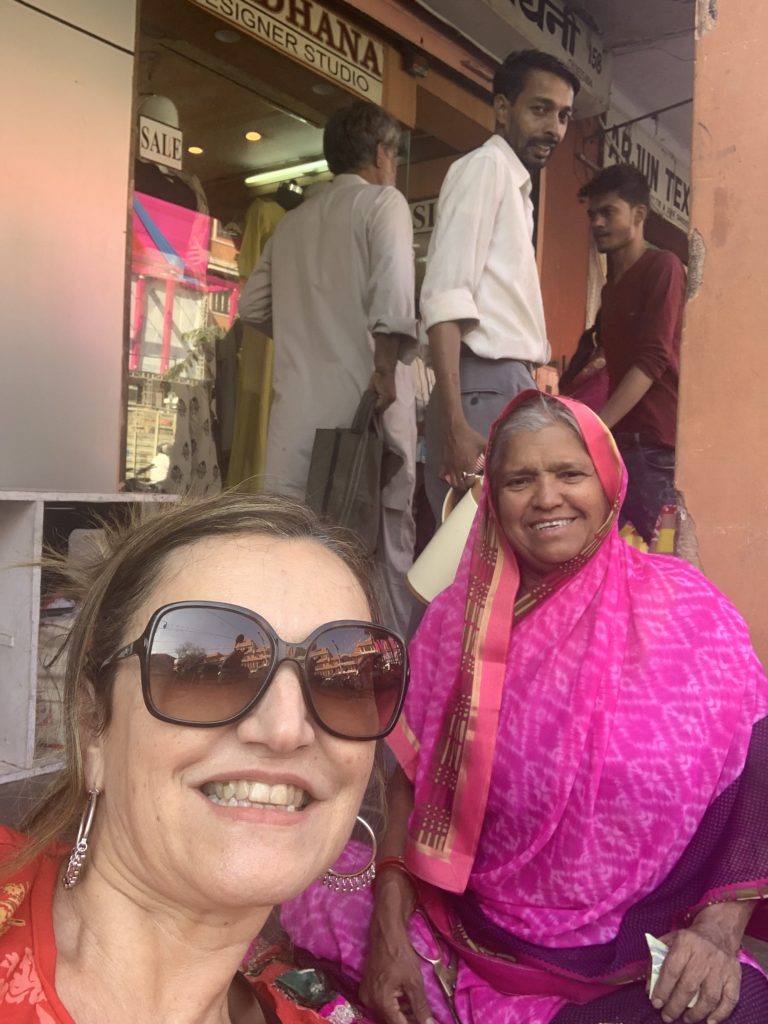
We all hear stories about dishonest sellers in every country and getting ripped off and jaded. Well, here below is the most honest seller I had during my trip to Jaipur. I need to highlight when someone is a good business person and professional.

Jaisalmer
An unpredictable natural and historical gem! It is known as the “Golden City” in the middle of the Thar desert. A major historical gateway to Persia and the Arab countries. The city was a major trading center. The city is named after Maharaj Rawal Jaisal, thus the name of the city Jaisalmer.
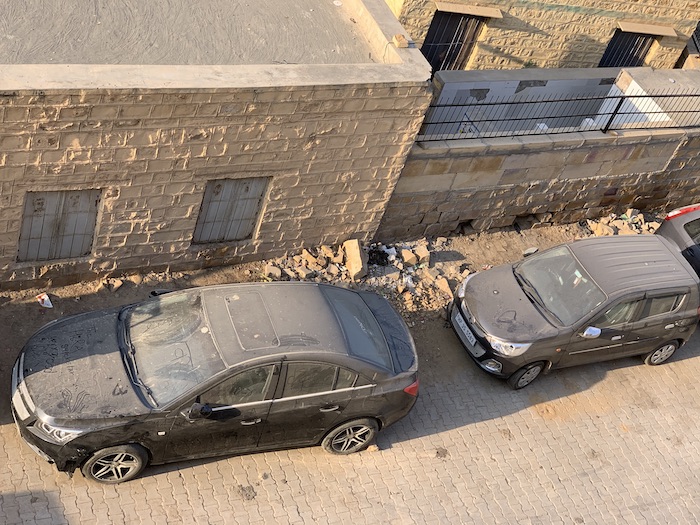
I stayed in a place very very worth mentioning (it is not sponsored) with a fantastic view and truly wonderful service. I definitely recommend.
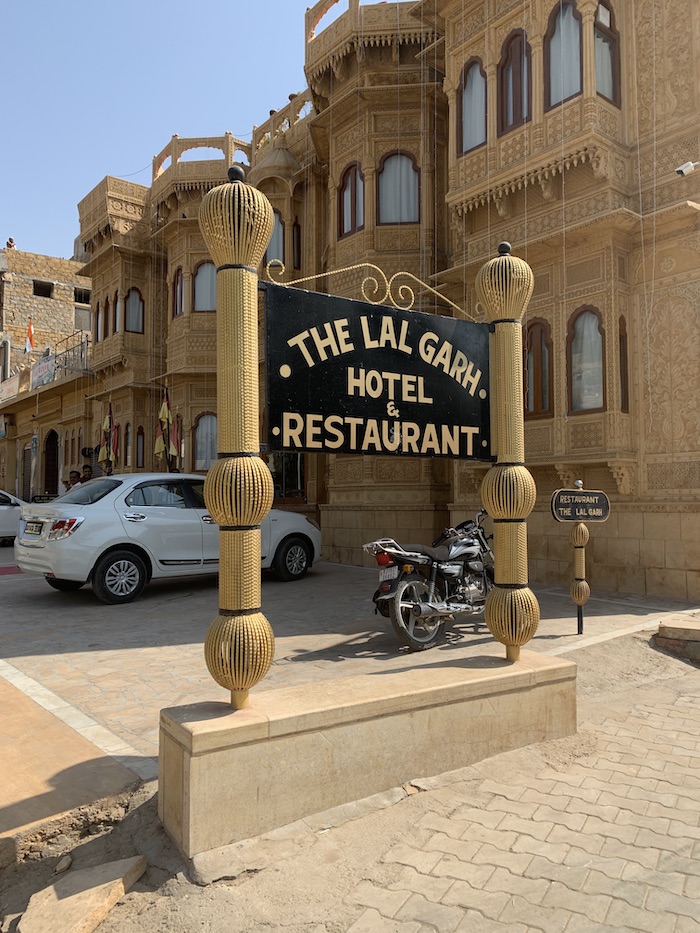
As a solo woman traveler, I appreciate when people go the extra mile to make one feel at home
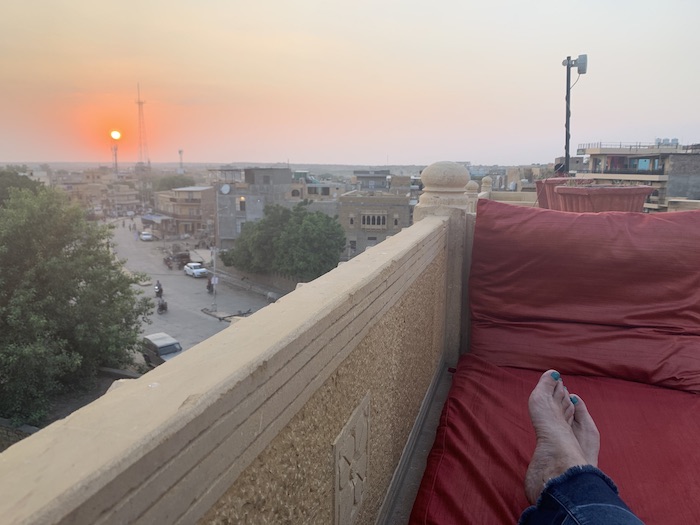
The Maharaj ordered a fort to be built on Trikuta Hill in 1156 BCE, and it is the oldest still inhabited fort in India. The fort has been declared a World Heritage Site by UNESCO. The fort started its grandeur on the east-west caravan route that connected India with the Middle East, Asia, and Africa.
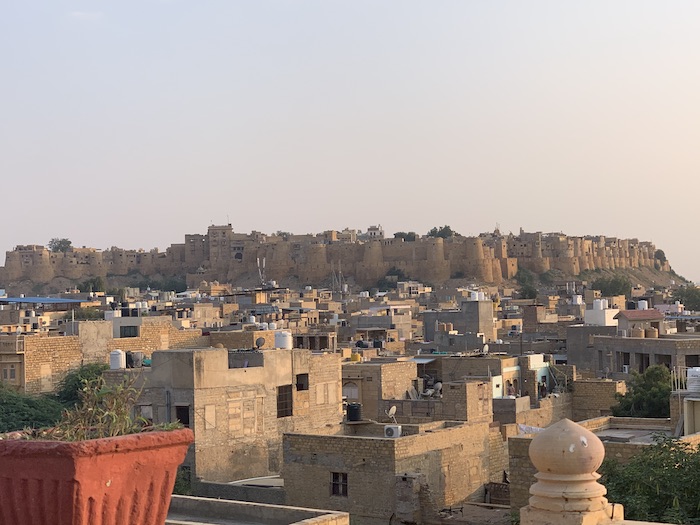
The fort has three layers of walls, the first wall is made of stone blocks to make it more solid. Inside the fort, one can find buildings, palaces, temples, and homes made of sandstone. Almost a quarter of the Jaisalmer population lives in the fort in 2020.
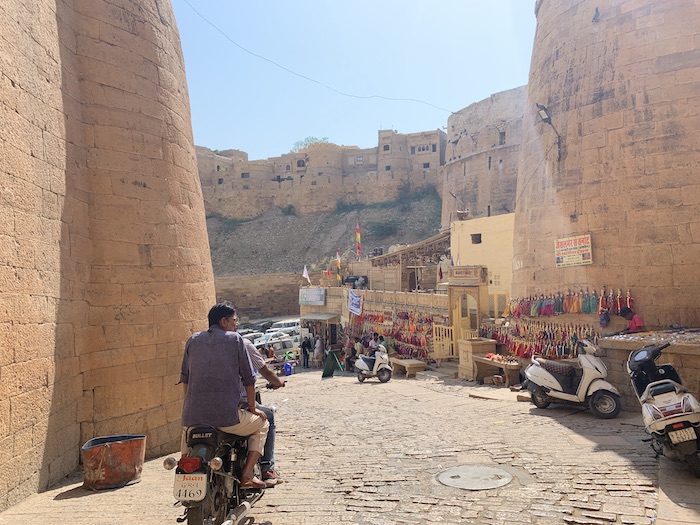
The fort’s amazing 800-year history is all around its inside and out. This major trading center started to lose power when the British rulers moved the commercial side of India to the port of Bombay.
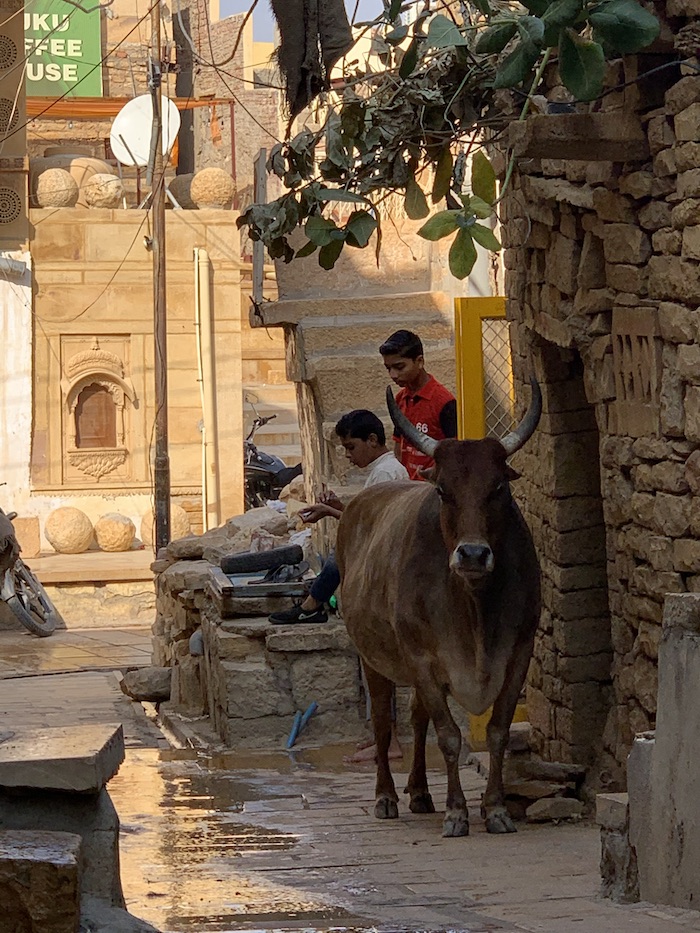
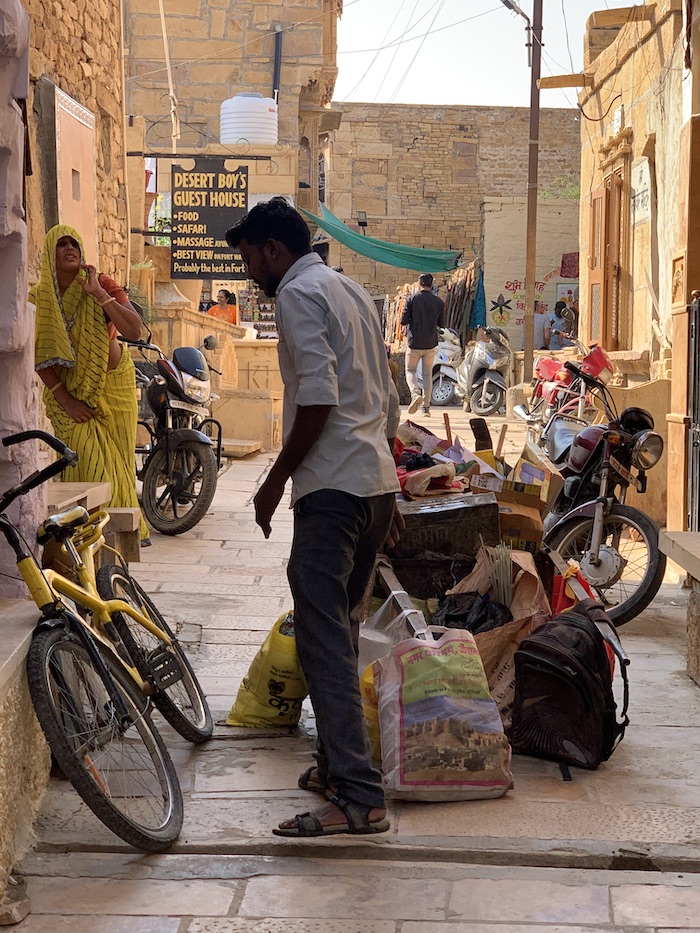
The fort houses around 4.000 residents, mostly descendants of the ancient fort’s workers.
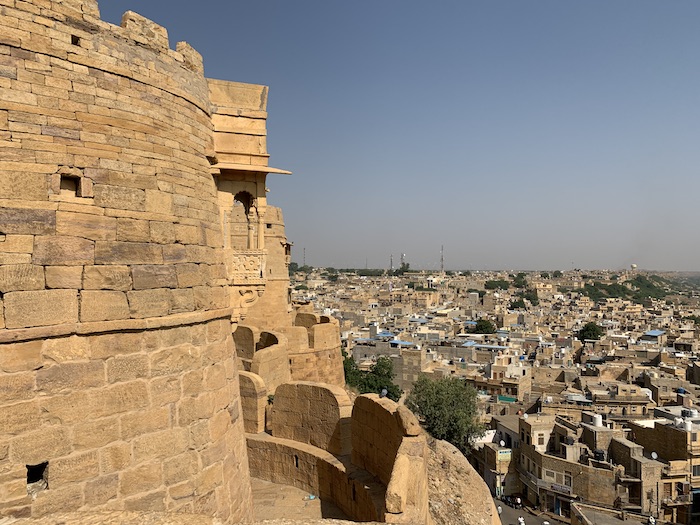
The city and fort are no longer a center for commerce but the city was able to survive due to tourism.
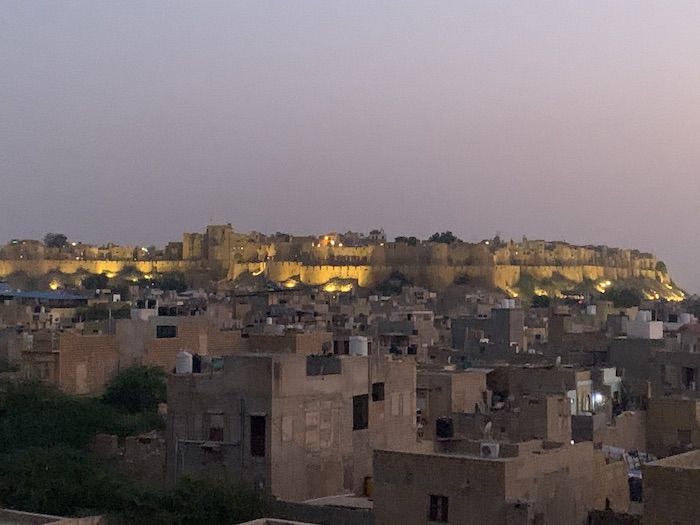
Beautiful havelis, mansions, around the city with that Indo-Persian allure that made me feel that I was in Persia during their life as nomadic tribes – that later gave life to the Kingdom of Iran. So many Persian aspects of art, architecture, and life have permeated this region of India.
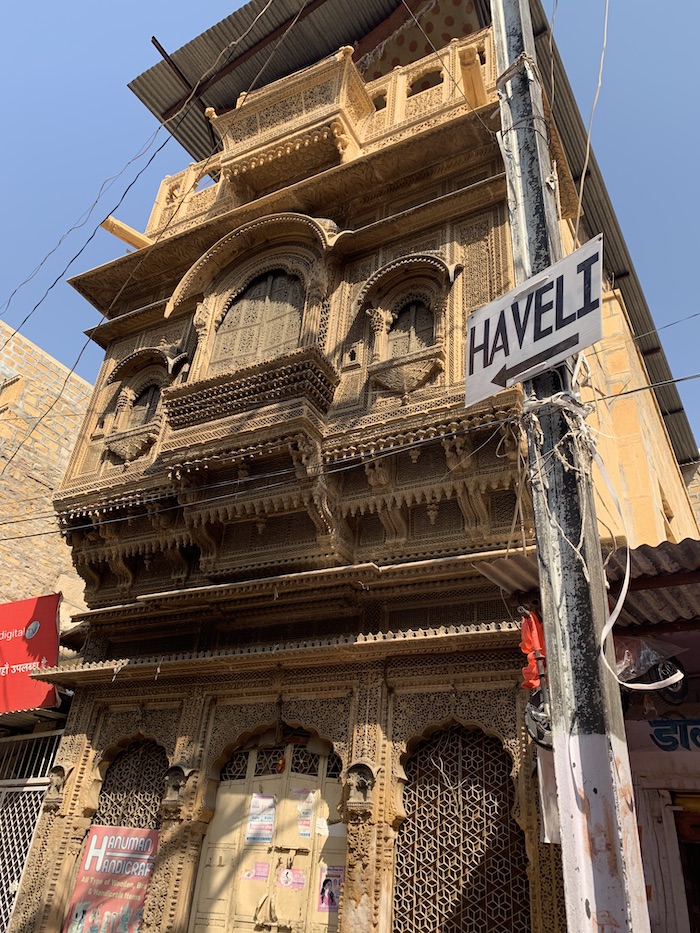
Wealthy patrons such as the Muslim elite built beautiful havelis, bridges, and palaces…it was like reading poetry from Rumi for me (who I still have not visited Iran). So many aspects of Persian style have been completely absorbed by this region of India.
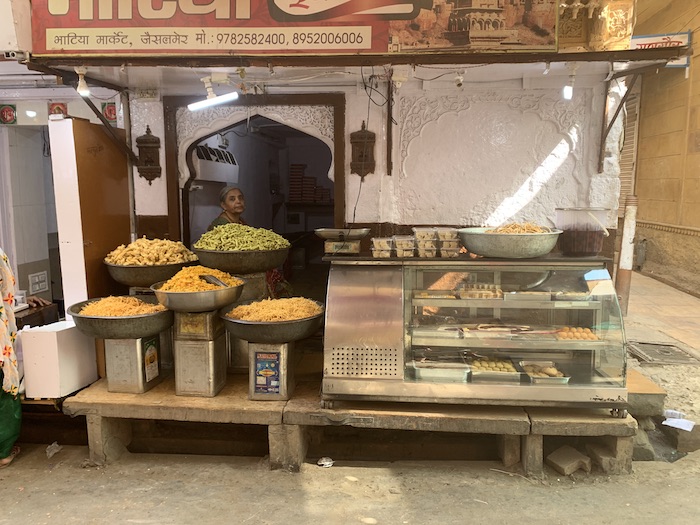
GADI SAGAR LAKE
Located in the south of the city of Jaisalmer, there is a man-made water reservoir that was built by Maharawal Jaisal in 1367. The reservoir would have water until it was almost dry during the monsoon season.
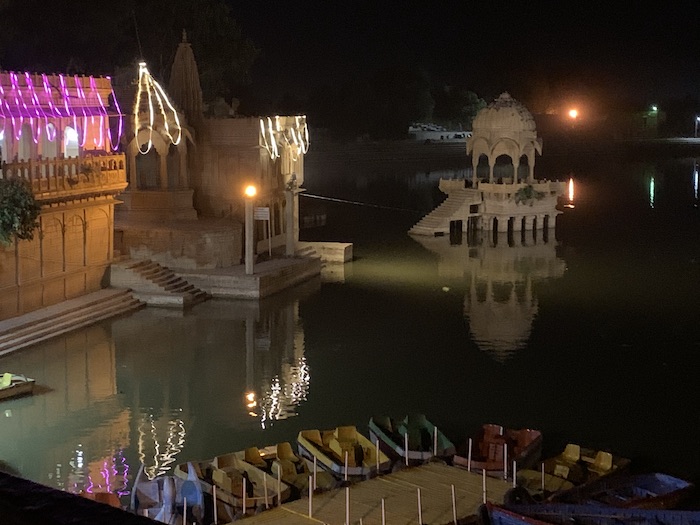
This beautiful lake made was the main water supply of Jaisalmer until the year 1965.

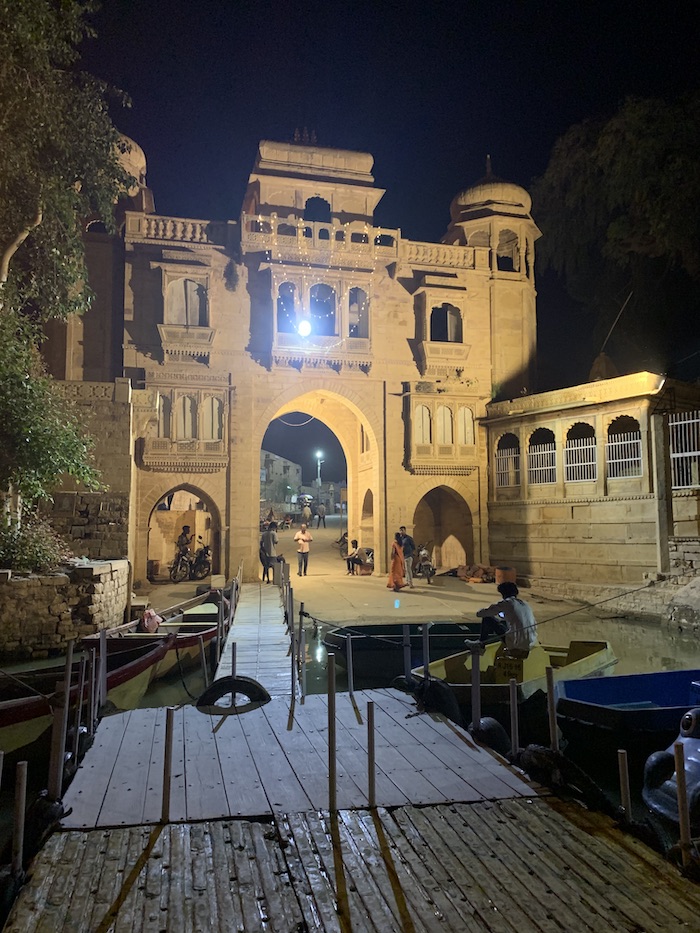
The lake is surrounded by homes, shrines, and temples worth visiting. One can ride a boat or simply go for a lovely walk around the lake. I really felt the glory of the old age Gadi Sagar Lake.
Jaisalmer to me is a very special place that I choose to go back to because of that “family” feeling.
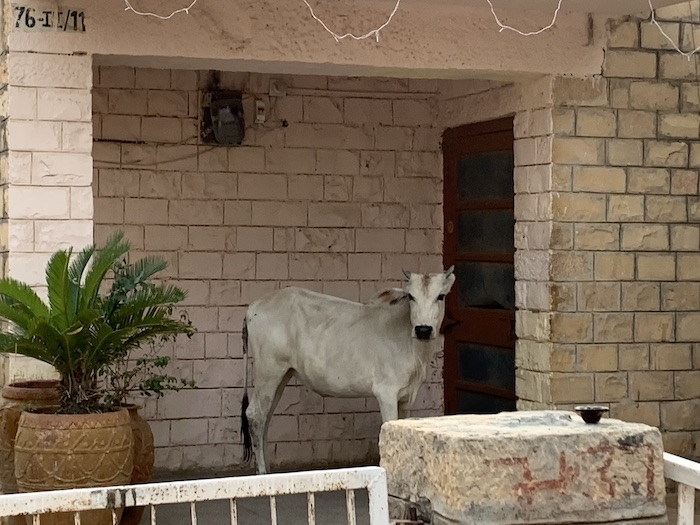
A visiting cow in my Jaisalmer neighborhood. Typical homes that keep the air cool during the hot days.
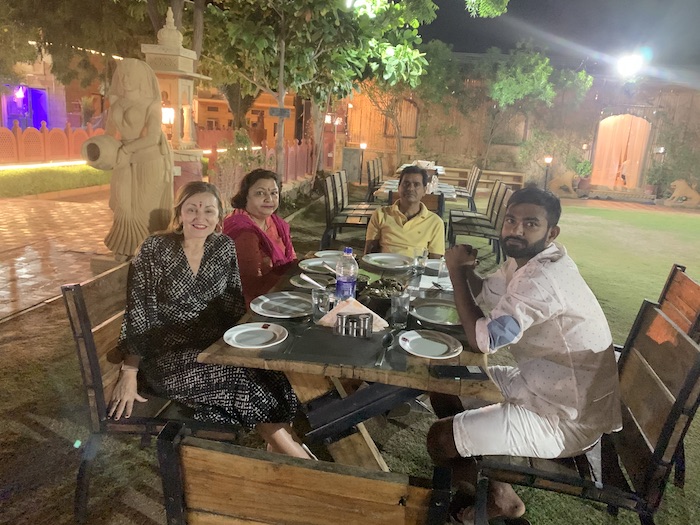
It is hard for me to be completely objective writing about Jaisalmer. Here I met the nicest family by chance who literaloly took me to their home and “adopted me” as if I were a member of their family. I am now an aunt to this family’s sons and I care for them dearly.
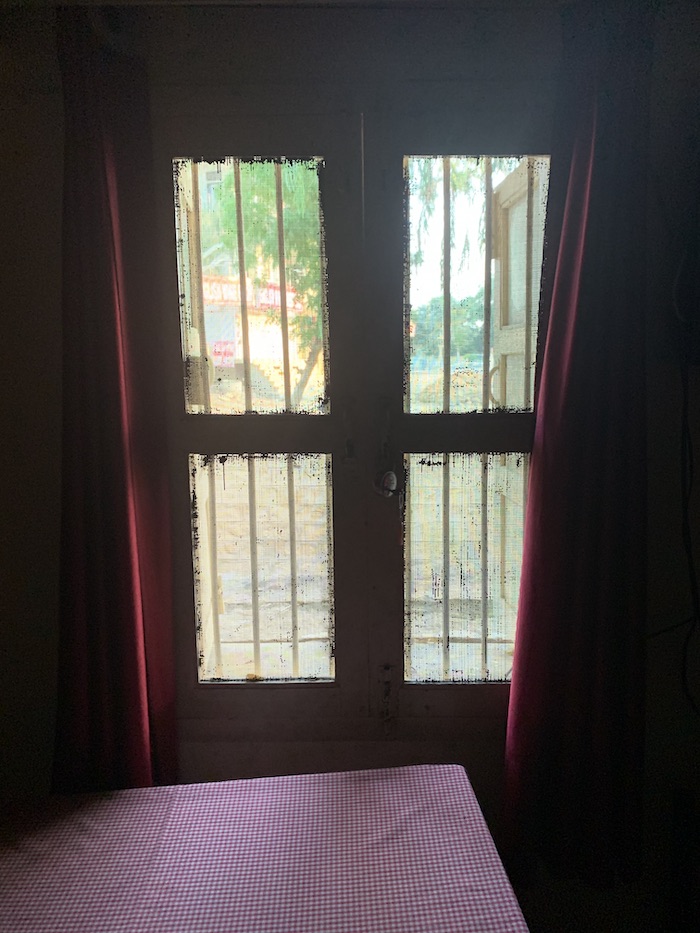

An interesting fact here. In the past, tourists visiting this region were middle class. They used to hire locals for desert tours that lasted 5 to ten days. Nowadays, tourists are upper-middle and upper class, staying in a hurry, looking into visiting too many places in two days.
THAR DESERT
The large Thar desert is located in the northwestern part of India, and 85% of its territory is located within the country. The Thar desert is the most populated desert in the world, and Muslims, Hindus, Sikhs, and Jains co-exist in its vast area.
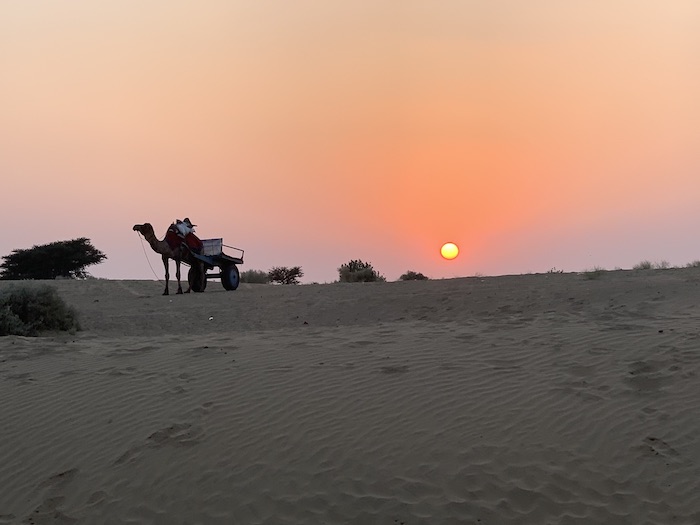
One can taste a bit of the nomadic life of the Thar desert by staying in one of the many desert camps.
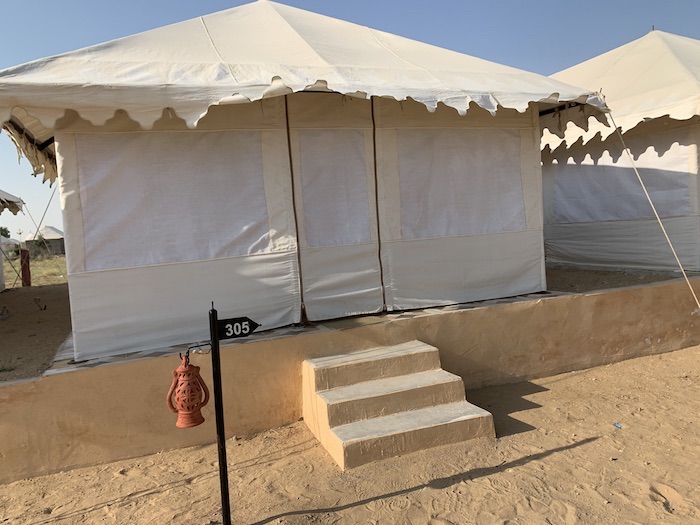
Desert camps offer the opportunity to live in the desert in one of the many elaborately decorated tents, learning about the ecosystem in the desert. If you don’t want to stay in a camp, there are backpacker treks and sleeping under the starry desert sky.
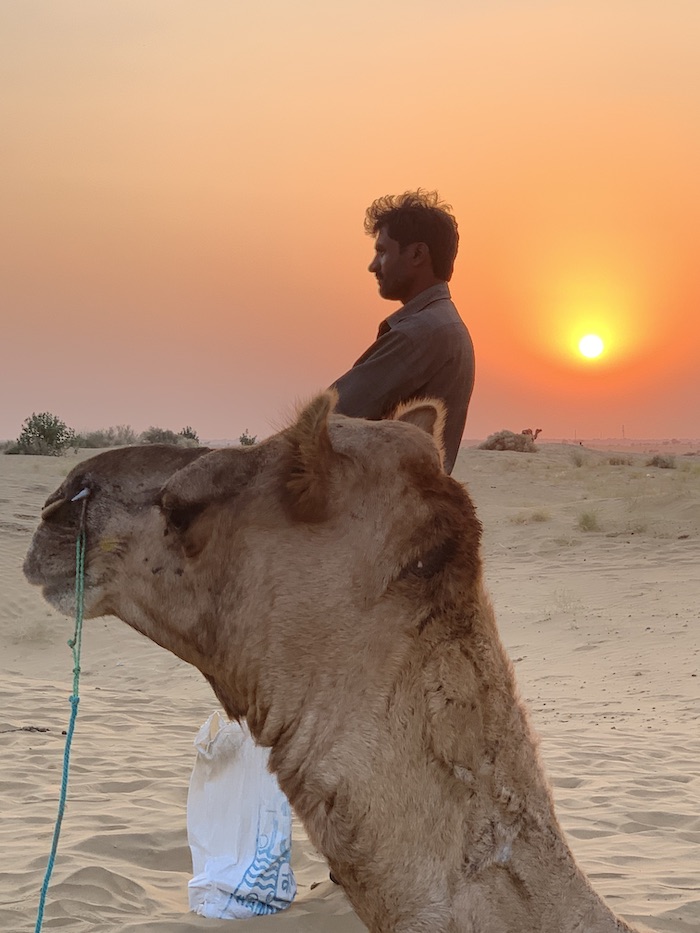
DO NOT RIDE ANIMALS! You can give the animals’ owner a tip, but do not ride them! I made the mistake years ago of riding these animals, but I know better now! So do you!
The desert is a very arid region, and people depend greatly on camels. Populations in the desert live as nomads, searching for water supplies, and camels are a big part of daily life, providing transportation and access to that water.
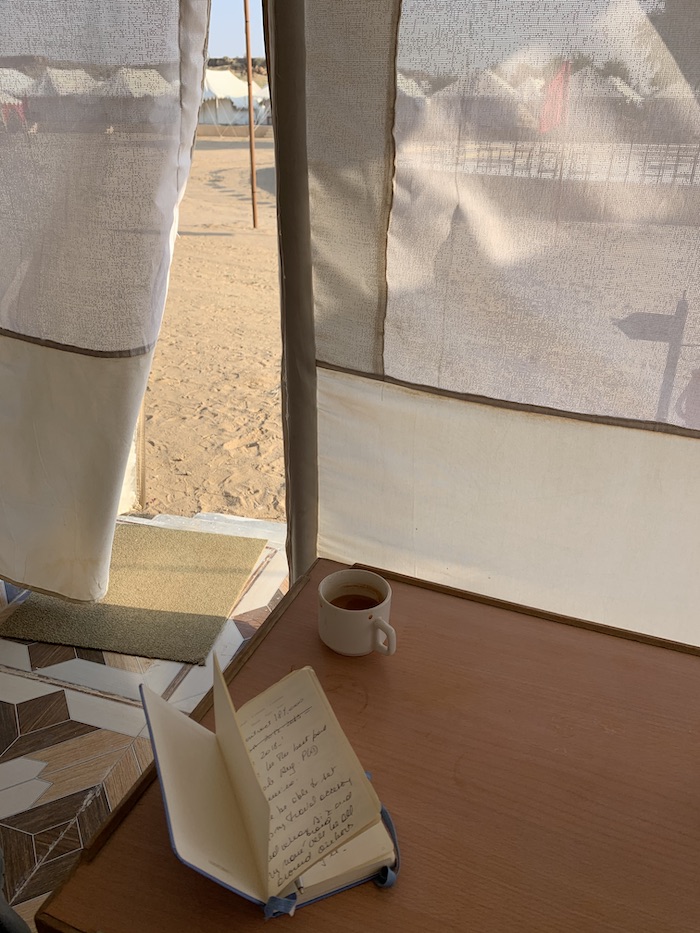
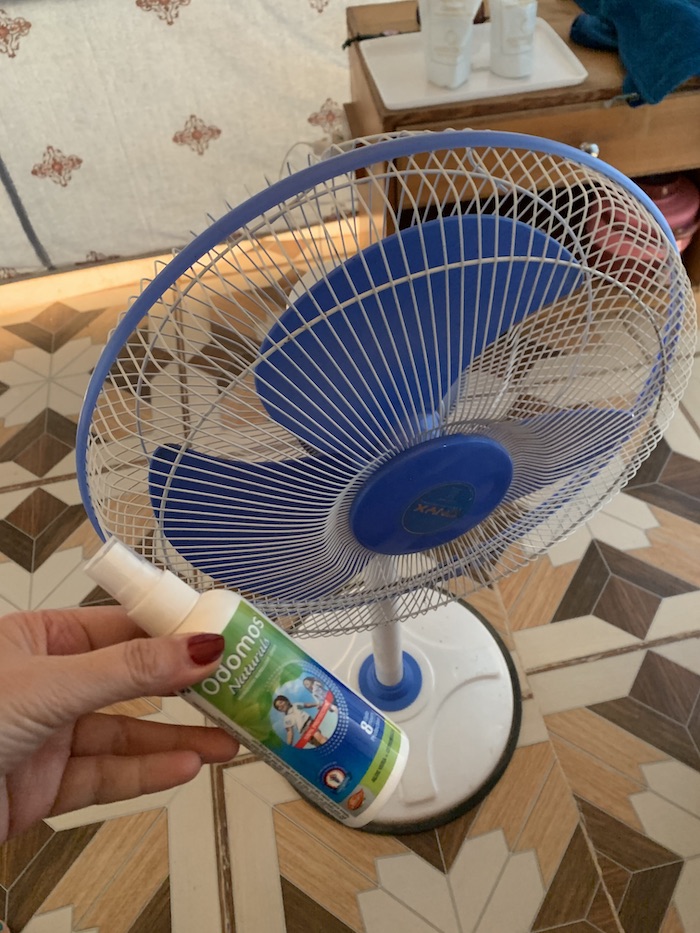
I learned a lot about desert life during this visit to Jaisalmer and the camps. My adopted family in Jaisalmer comes from the desert and describes the way of life in the area. There are two important issues that people in the desert struggle with: access to water and healthcare. According to the United Nations, access to safe drinking water is a human right. Unfortunately, millions of people today do not have access to clean water.
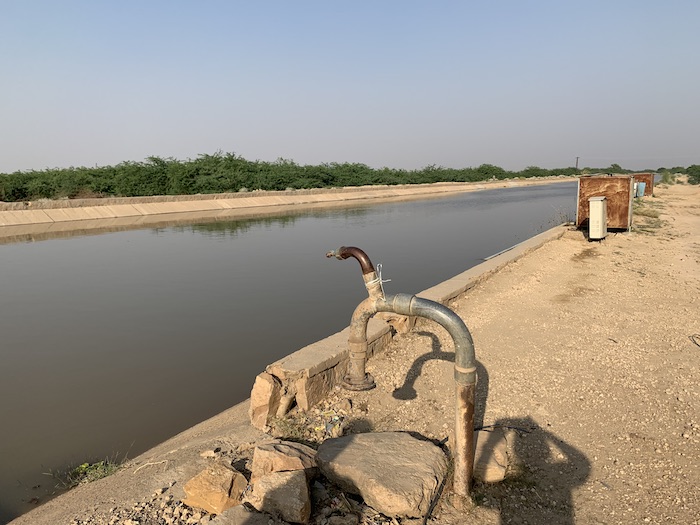
Chakri dance is only performed by women, and it is the most popular dance of the Kanjar tribe of Rajasthan. It is said that the dance originated from a couple of tribes and then moved to Rajasthan.
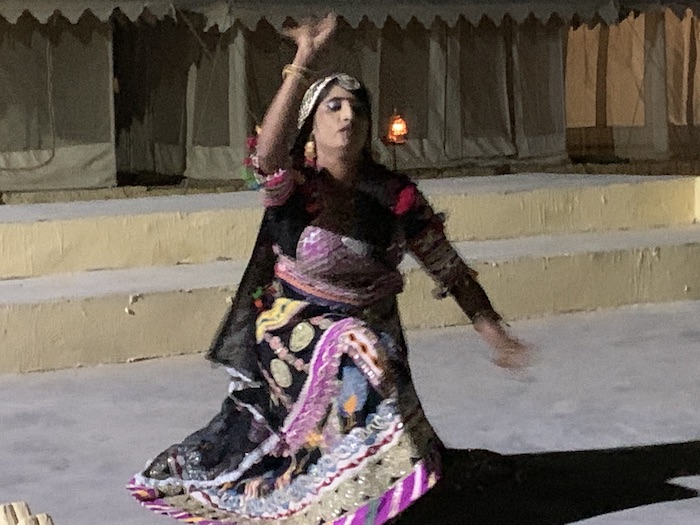
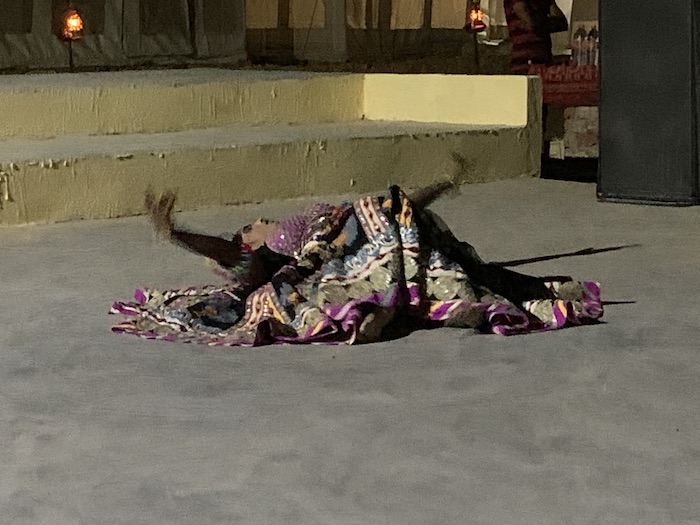
The amazing dancers perform fast circular movements accompanied by traditional songs and music played by male performers.
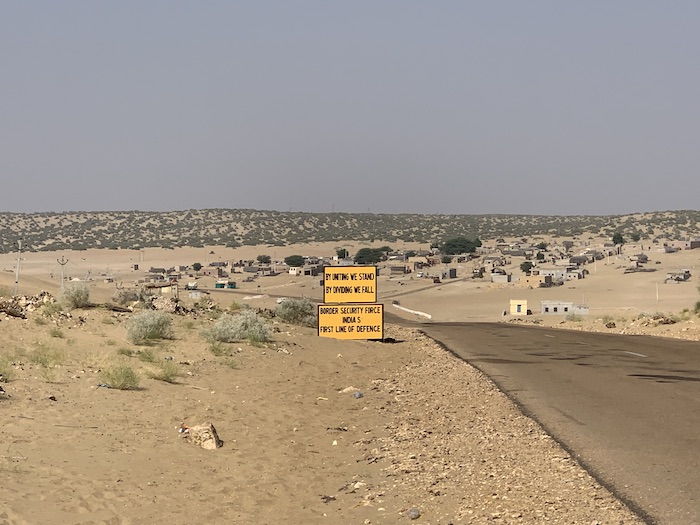
TANOT MATA TEMPLE
In the westernmost point of Rajasthan, there is a small village close to the Indo-Pakistani border called Tanot, in Longewala. In Tanot, there is a temple that honors the deity Tanot, also known as Awad, which is preserved and guarded by the Border Security Force of India.
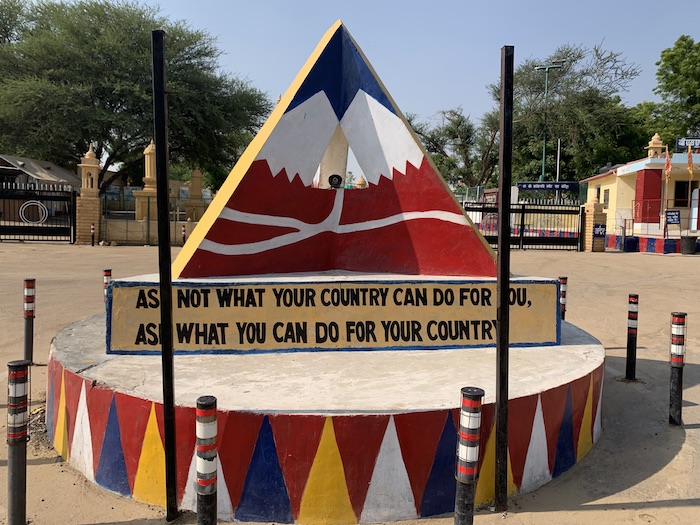
Legend speaks of the many miracles performed by Tanot Mata. During the war with Pakistan, Pakistan threw more than 3000 bombs, but miraculously, the shells did not explode, thanks to Tanot Mata. The Indian army defeated the Pakistani army during the wars in 1965 and 1971. You can see some pictures from the museum exhibit near the temple.
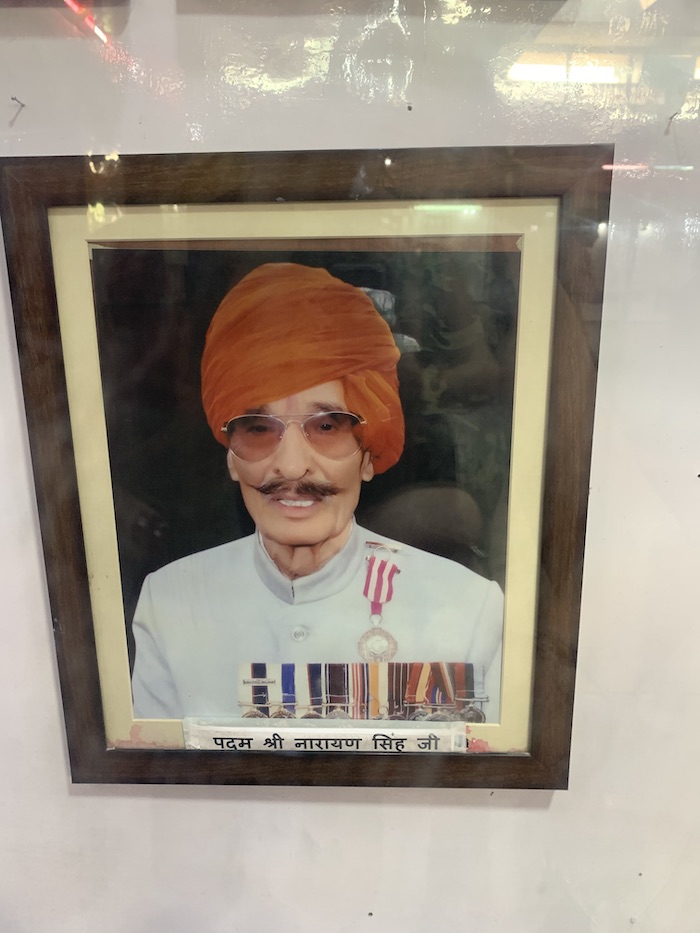
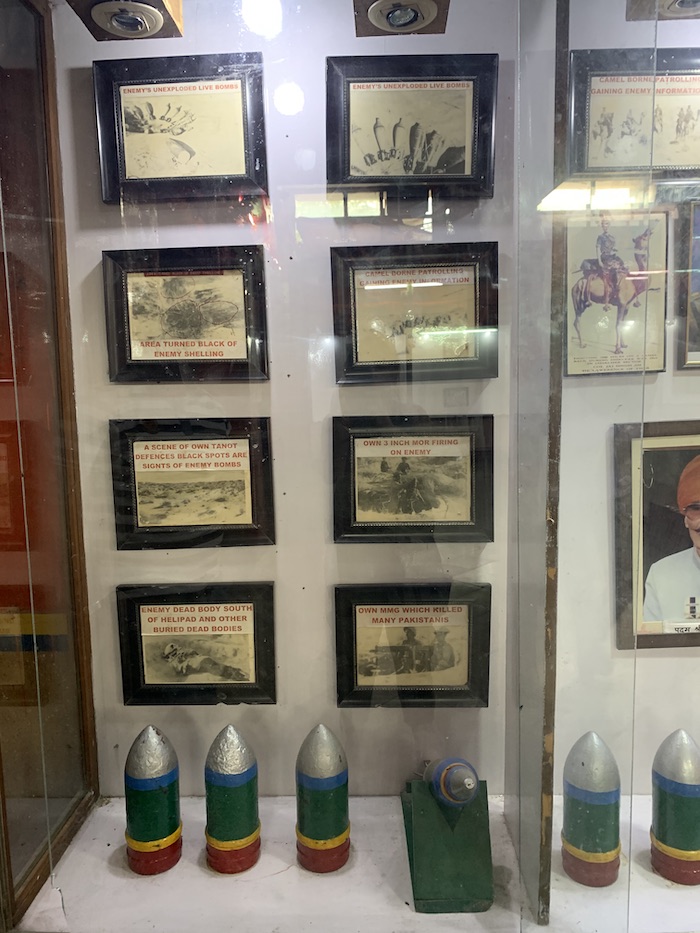
Locals consider the temple sacred and believe that anyone in need of help or a miracle must visit and be ready to receive Tanot Mata’s wish granted.
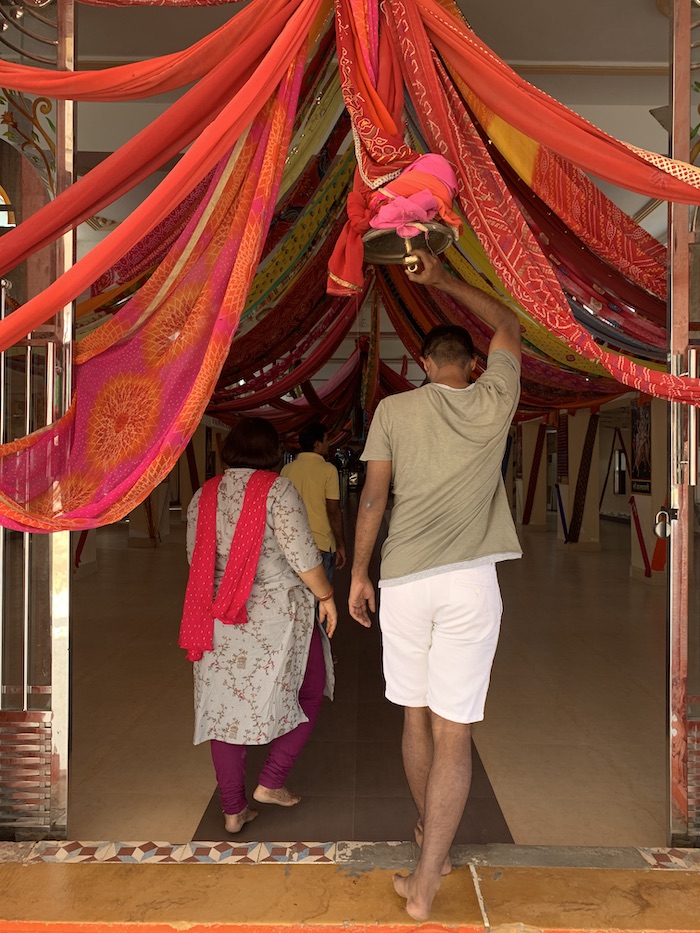
My family took me to the temple and gave me a tour of the place. They also explained the ritual of ringing a bell while entering a Hindu temple and also during prayer.

My friends taught me to offer a brand new handkerchief to the deity and to tie a knot to obtain a wish granted by Tanot Mata. You can see thousands of handkerchiefs all around the temple.
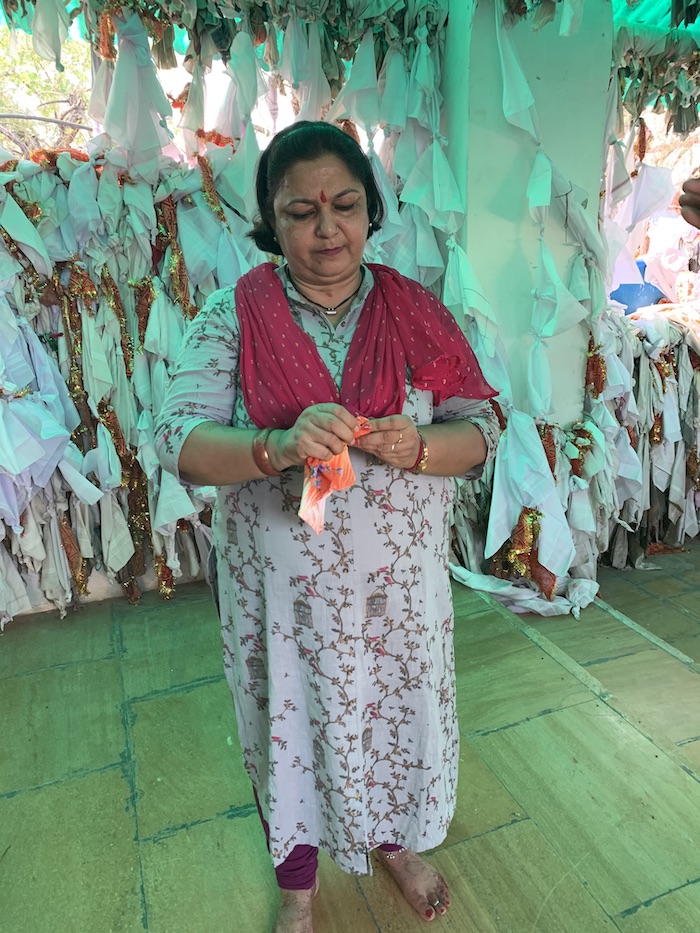
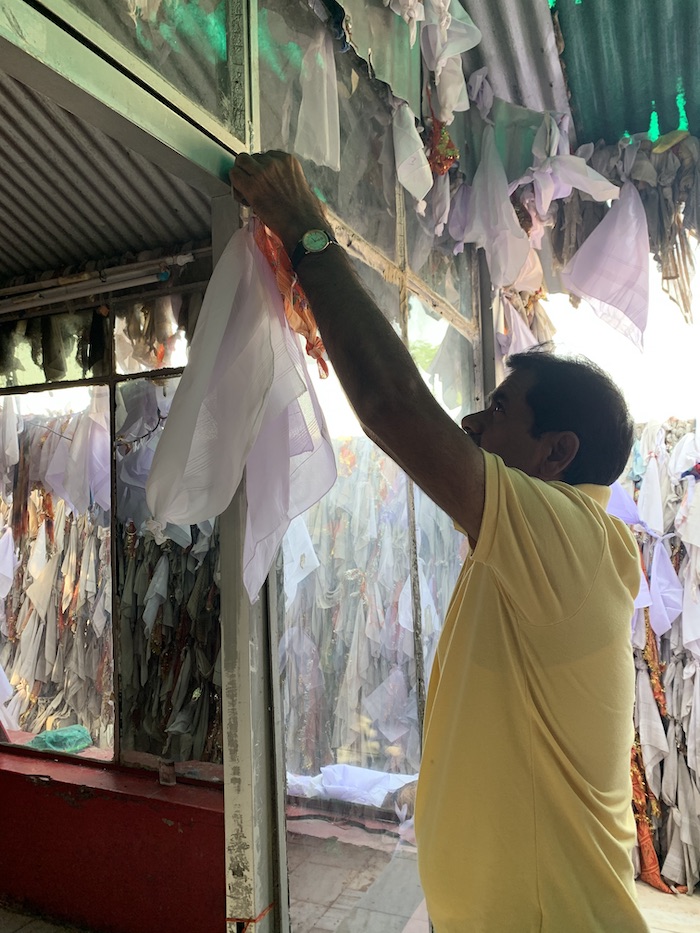

Yoga Rishikesh
Rishikesh is famous for being the birthplace of yoga along the sacred Ganges river. It is popular for yoga teacher training, retreats, and many ashrams. The downfall of being in Rishikesh itself is that the area was a bit crowded with too many buildings and many many more under construction.
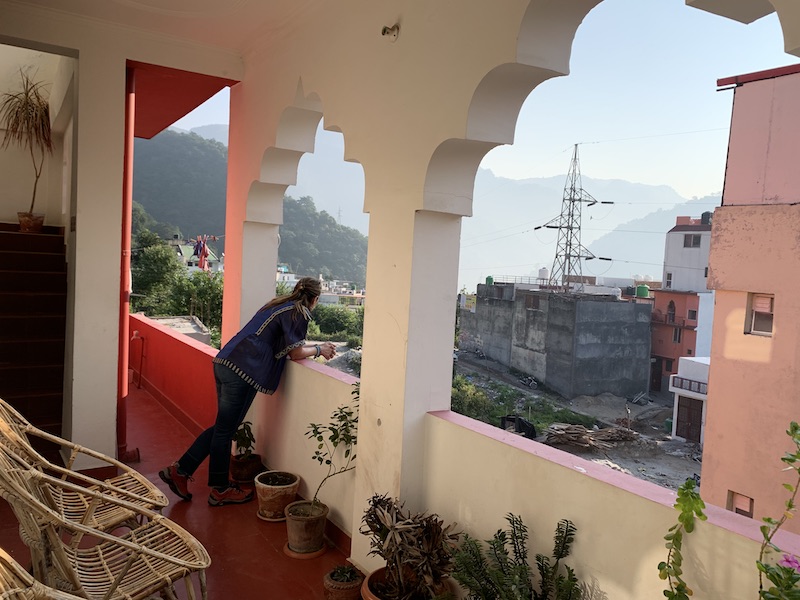
I stayed in an Ashram for a few weeks and I really enjoyed my experience. There were people fro all around the world.
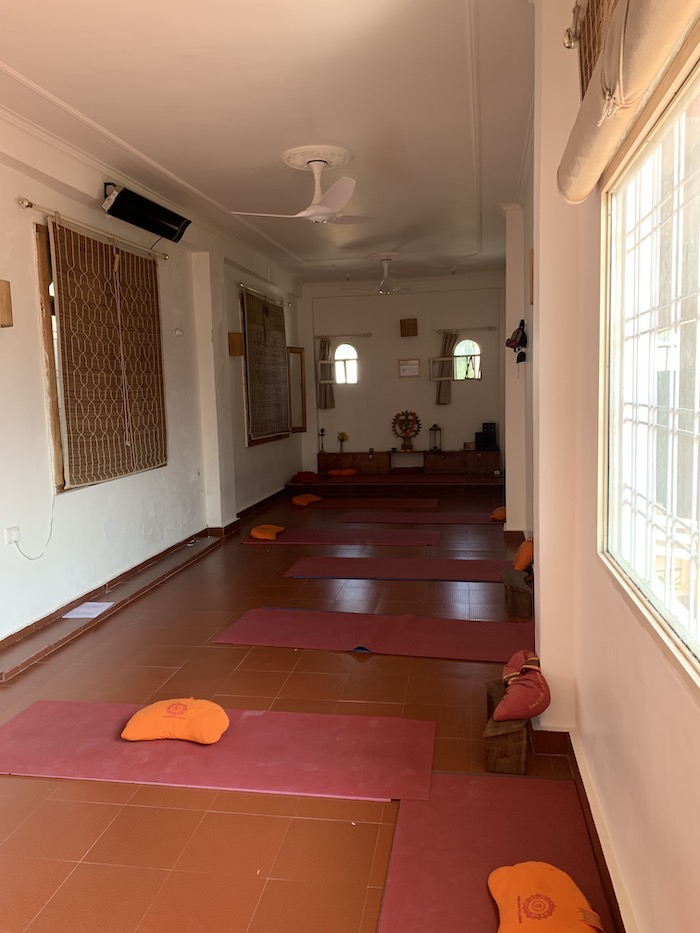
The ashram itself was very nice, the rooms were really comfortable and very clean. The daily early Yoga Nidra induced guided meditations and relaxation were superb! The yoga classes were outstanding!!
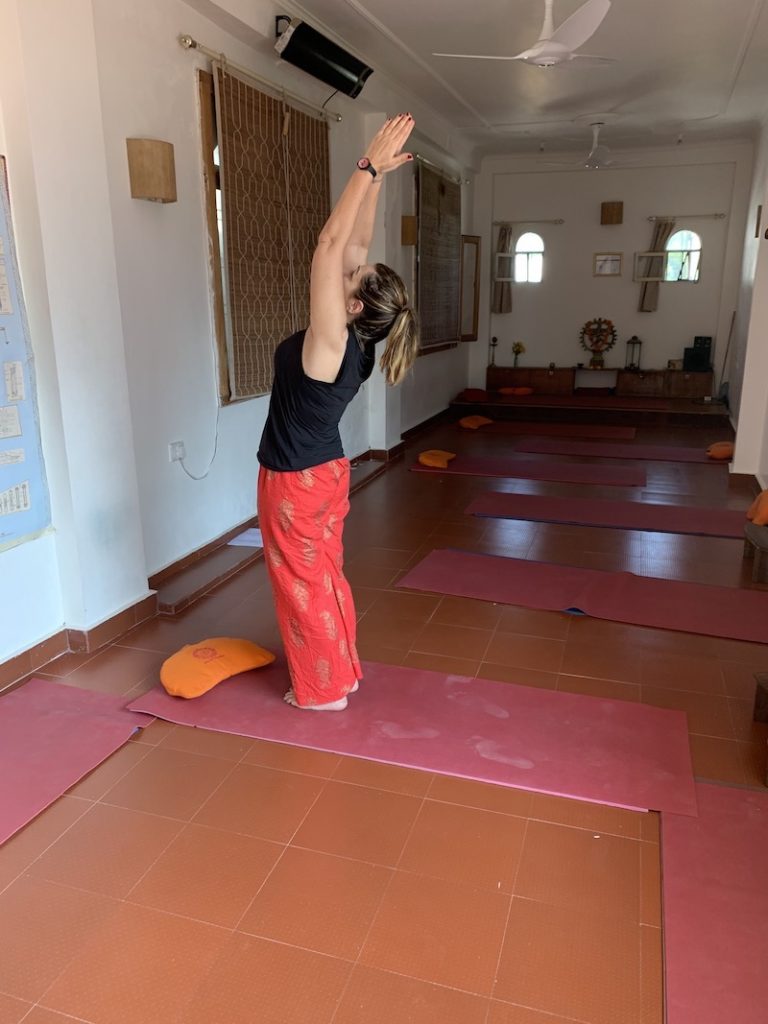
The food was freshly prepared during each meal and it was incredibly delicious. We all kept quiet during our meals…when possible…..at least we were supposed to be quiet…
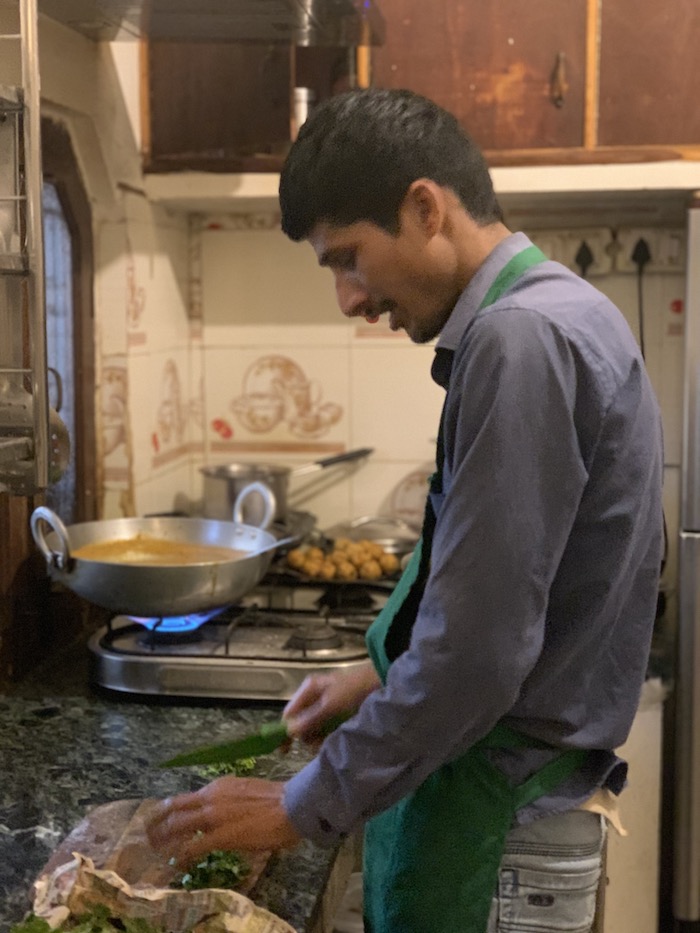

Every evening, we had a meditation class. It was a great time to be quiet and reflect on the experience.
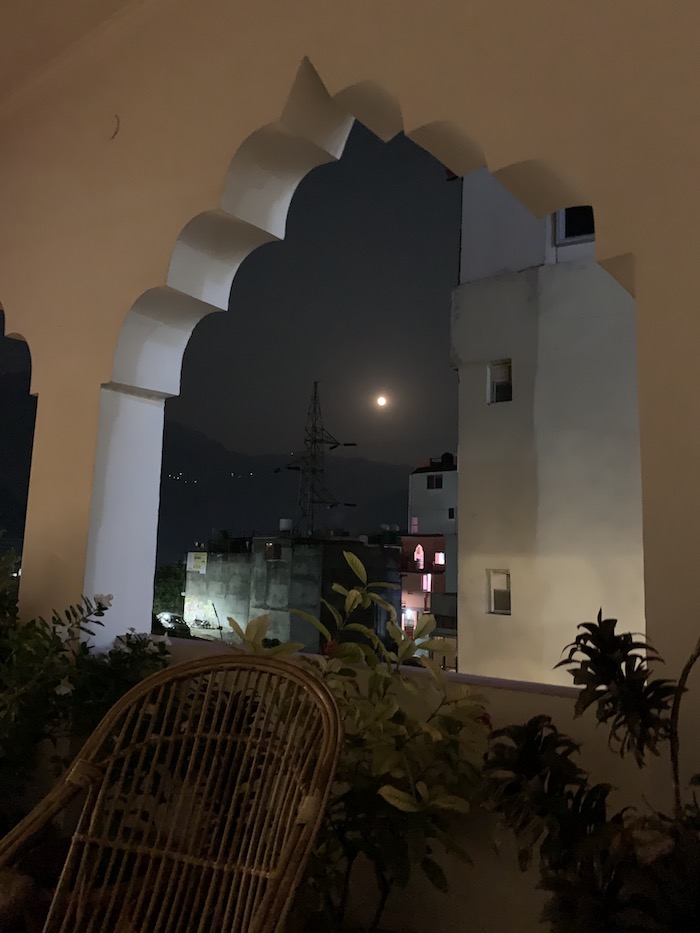
Do I recommend the place? Yoga is an intimate experience that varies based on whether a bustling city setting complements your practice. Despite the city’s prohibition on alcohol, non-vegetarian foods, and drugs, I have observed their presence there.

